
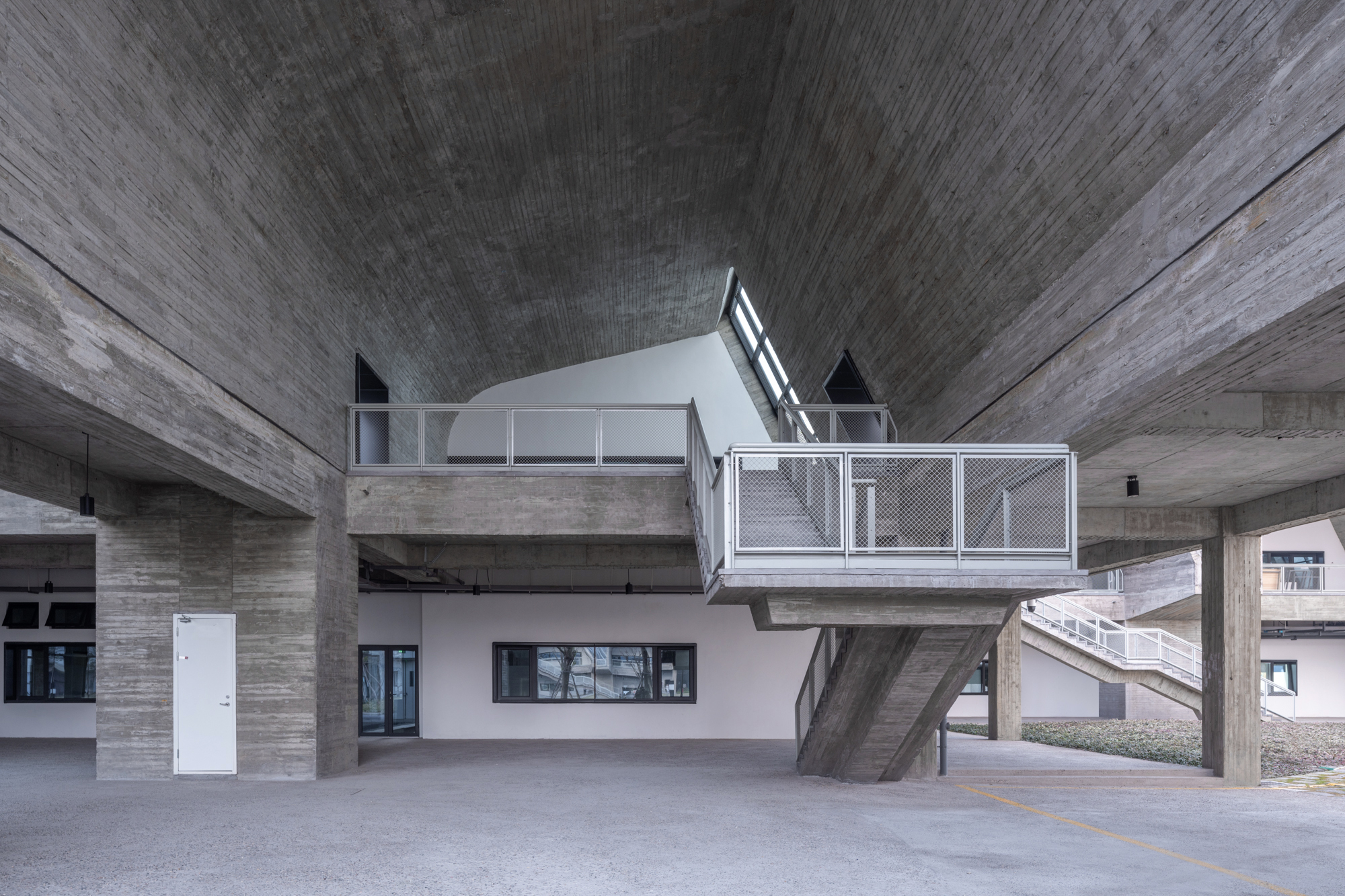

方案设计 非常建筑
施工图设计 同济大学建筑设计研究院(集团)有限公司 建筑设计三院
项目地点 浙江杭州
竣工年份 2021(一期Ⅰ段);2023(一期Ⅱ段)
建筑面积 180000平方米
本文文字由设计单位提供。
新教育体系的实行
位于杭州市的中国美术学院(国美)良渚校区一期工程一标段于2022年完成,二标段工程亦于2023年8月结束,总建筑面积达18万平方米。目前整个校园已全面投入使用。
The first construction section of the China Academy of Art's (CAA) Liangzhu Campus Phase Ⅰ in Hangzhou was completed in 2022, followed by the second section completed in August 2023, resulting in a fully operational campus with 180,000 sqms of building area.
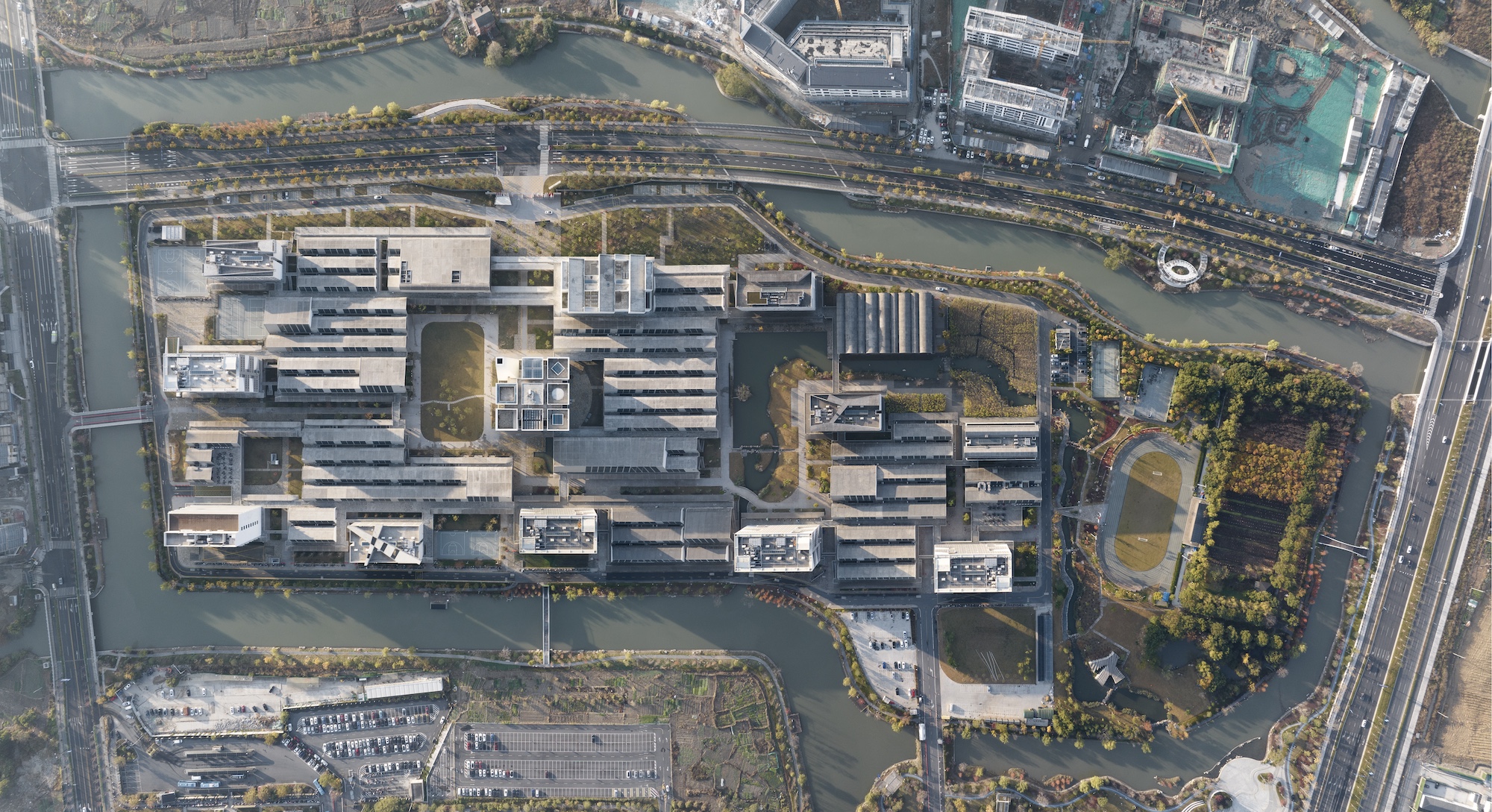

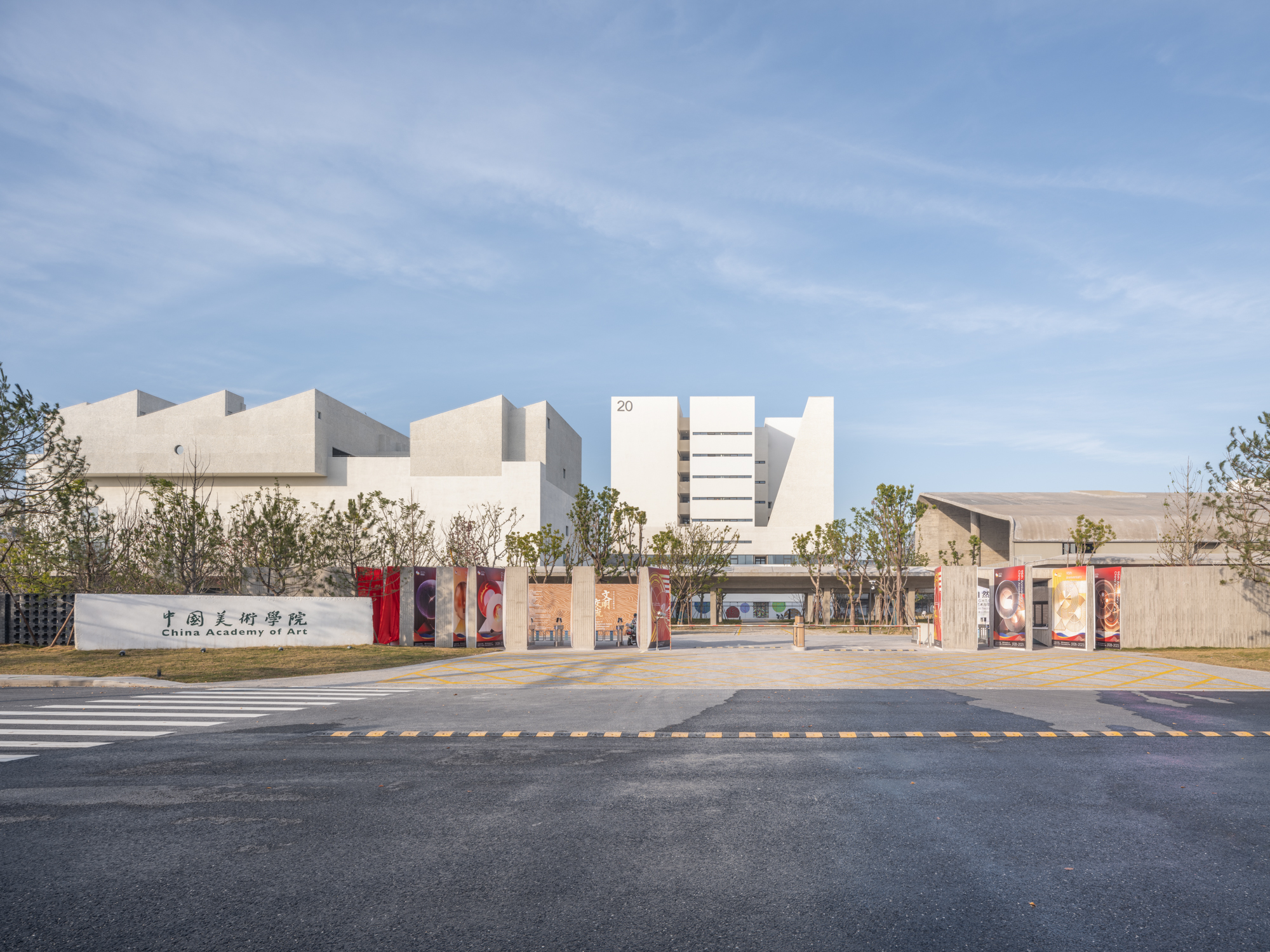
在良渚校区设计竞赛初始,国美要求参赛的各建筑师团队提出符合社会经济发展的新型教育体系。非常建筑的教育体系,包括以下若干的关键点,业已付诸实行:1)手脑并用的教学法;2)建筑学设为通识课;3)以研究为主导的高年级课程;4)兴趣社的设立;5)取消“系”的设置;6)与校园规划关系最直接的居学一体构想。
At the onset of the Liangzhu Campus design competition, participating teams were required to conceive an innovative educational system aligned with social-economical development. This educational paradigm, proposed by Atelier FCJZ, encompasses several key facets that have been set into motion: 1. embracing hands-on pedagogy; 2. integrating architectural studies into the general education; 3. prioritizing research-led coursework at advanced levels; 4. encouraging students to organize interest clubs; 5. abolishing conventional departmental structure; 6. pioneering the concept of living and learning intertwined, which impacts campus planning directly.

校区单体建筑的设计与使用
在居学成为校园空间组织的指导思路的同时,“开放”构成建筑设计意图的另一条主线。我们将开放定义为:1)空间在物理层面上的开放;2)空间内容的可变性;3)使用者,包括校方及师生,参与对空间使用的再设计。
While living-learning guides the spatial organization of the campus, another main thread shaping the architectural proposal is openness. We define openness as: 1. openness of physical space. 2. changeability of content in space. 3. participation of users, including the students and faculty, in re-imaging how space is utilized.
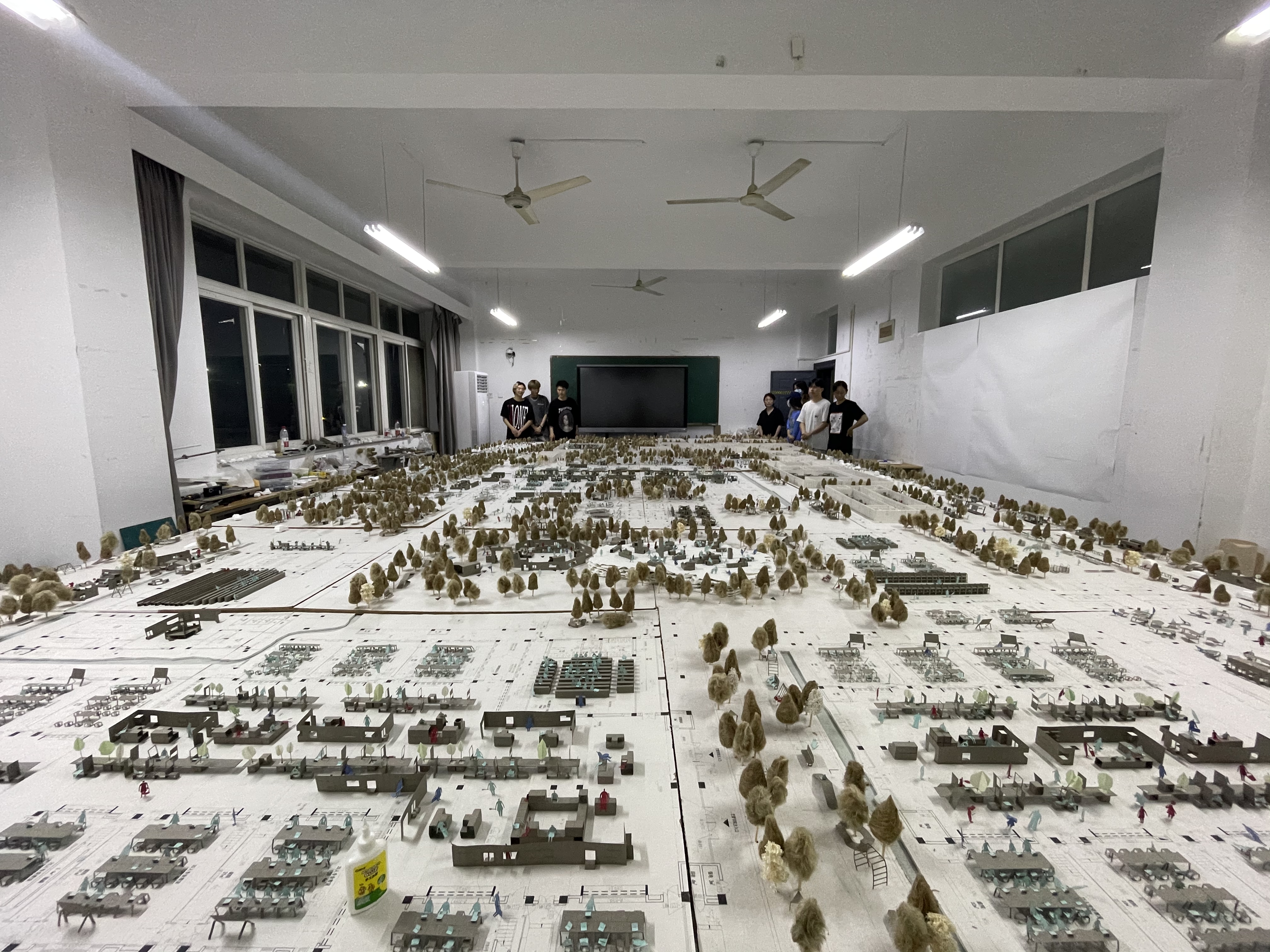
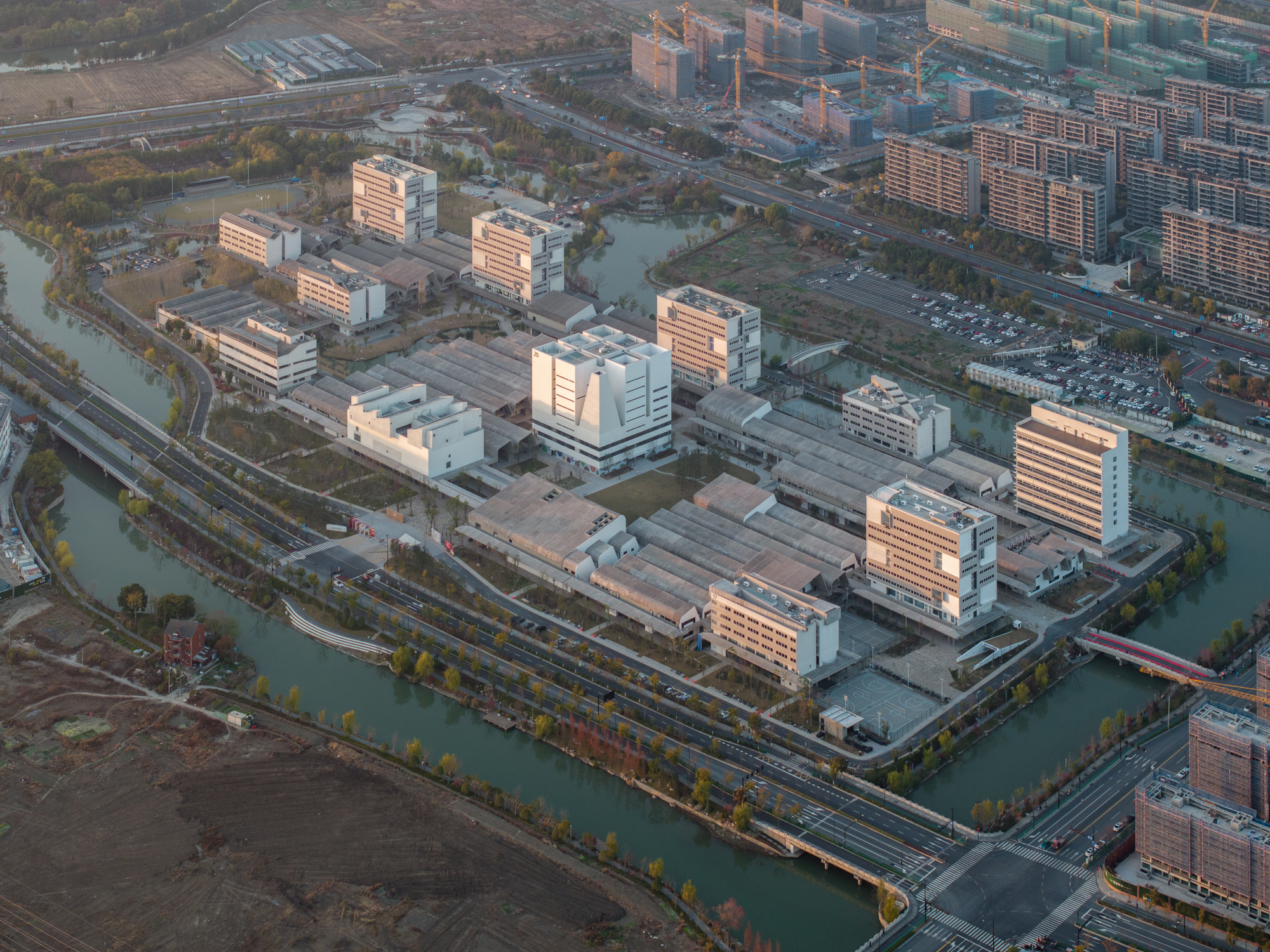



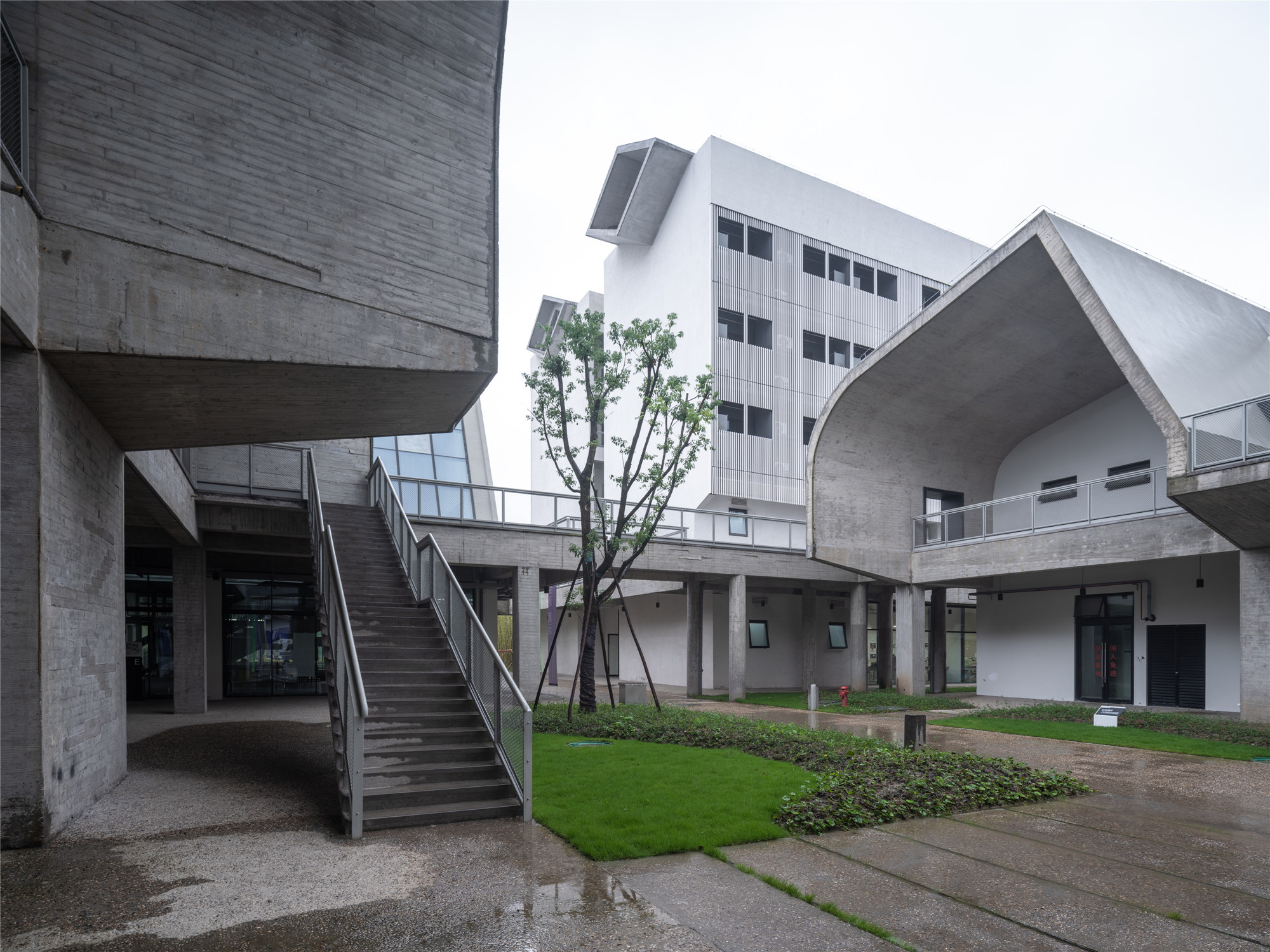
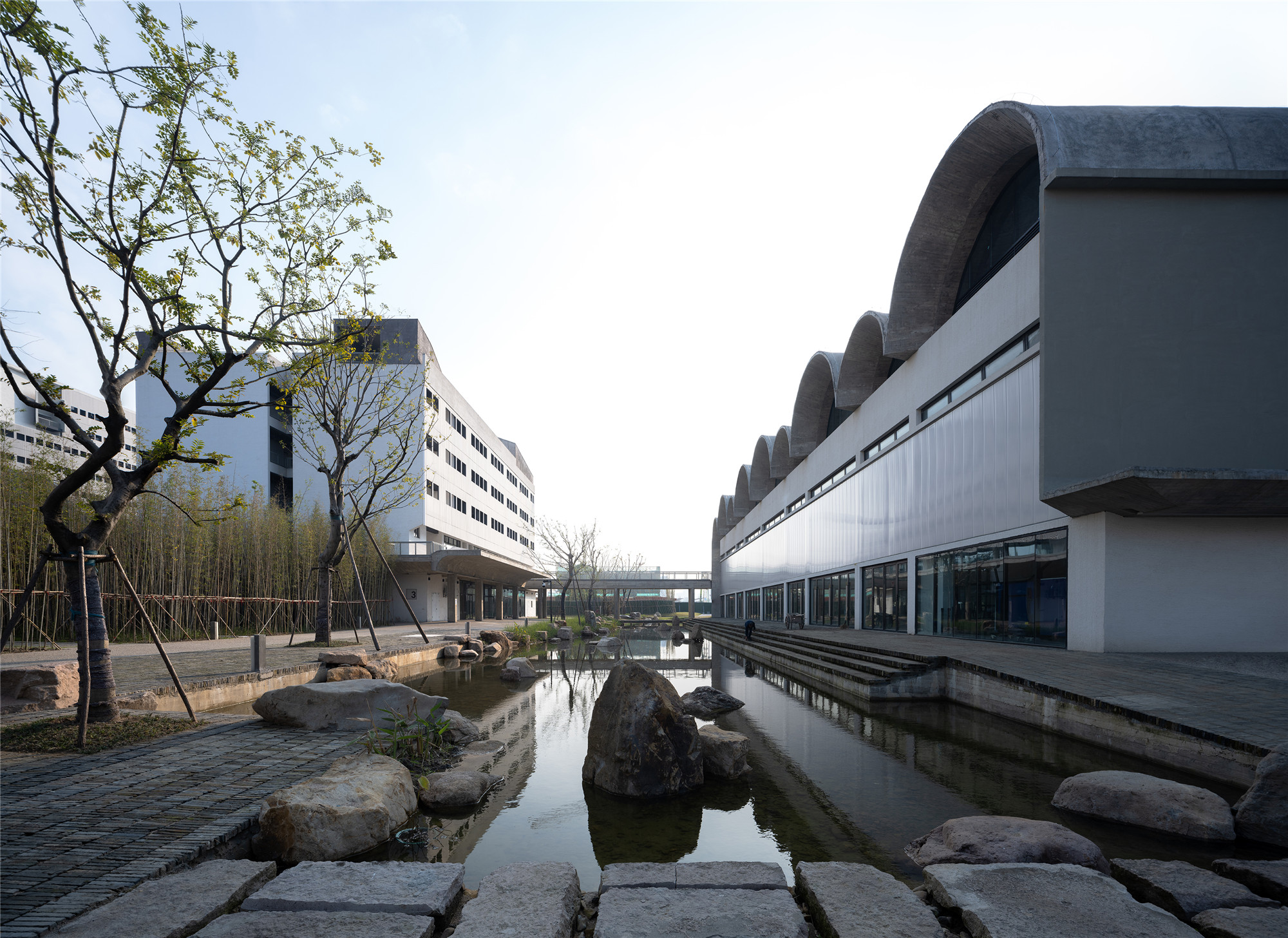
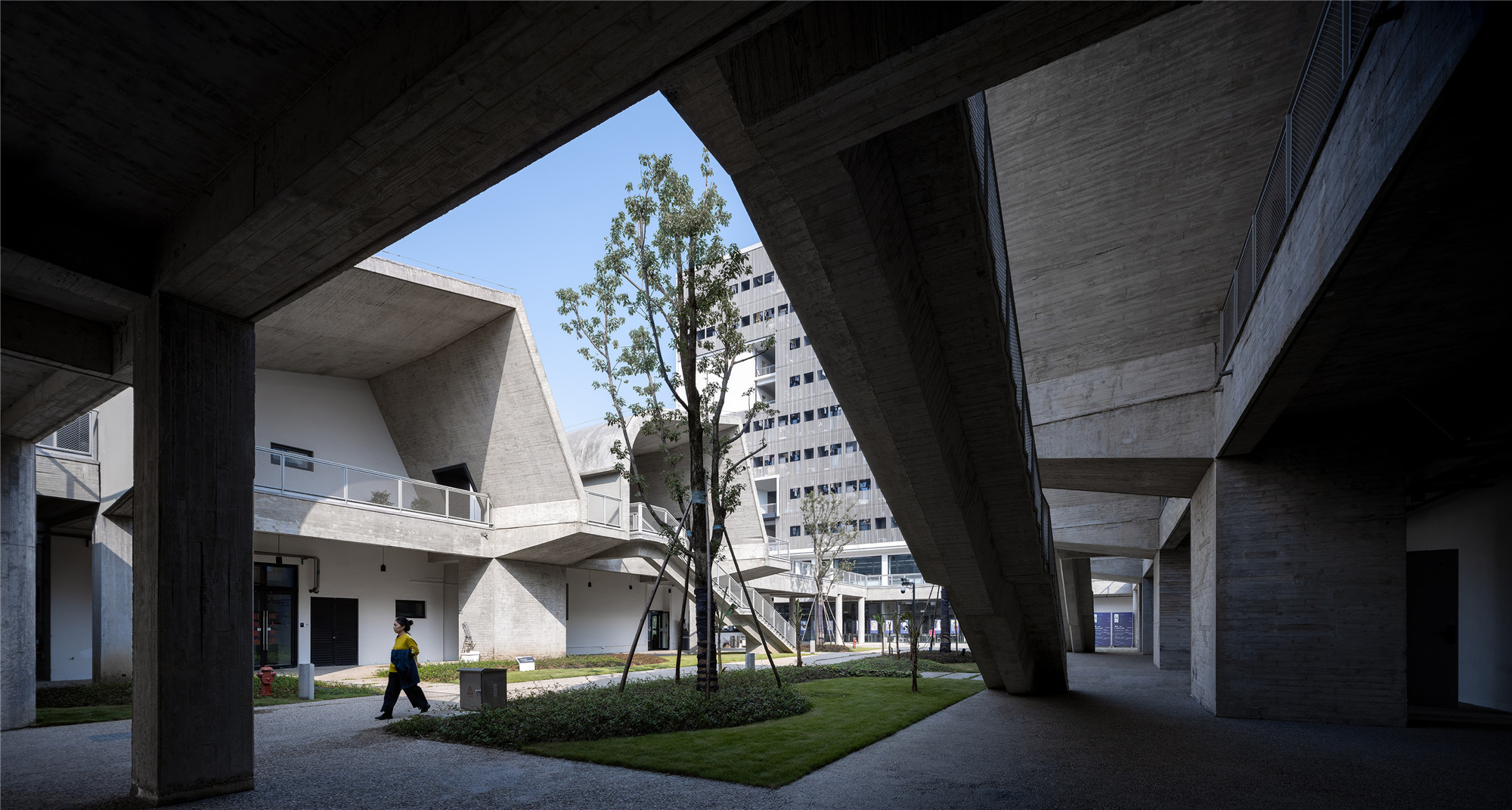
工坊
开放、绵延的工坊,由一系列拱券组成,意味着鼓励师生走出自己相对私密的环境,更多地进入公共领域。
Roofed by a series of arches, the open and stretching studios encourage students and faculty to step out of their relatively private environments and engage more in public domains.


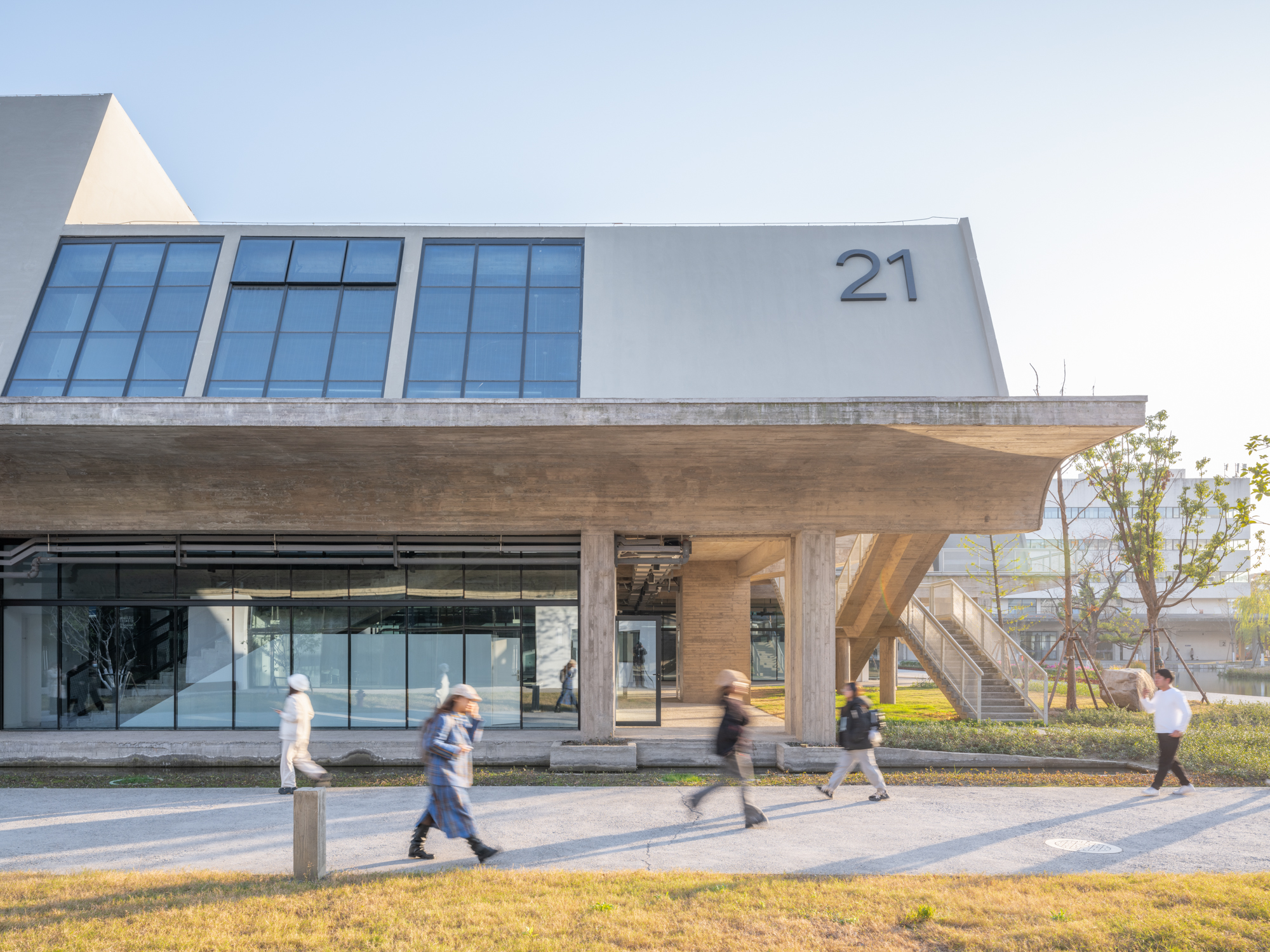
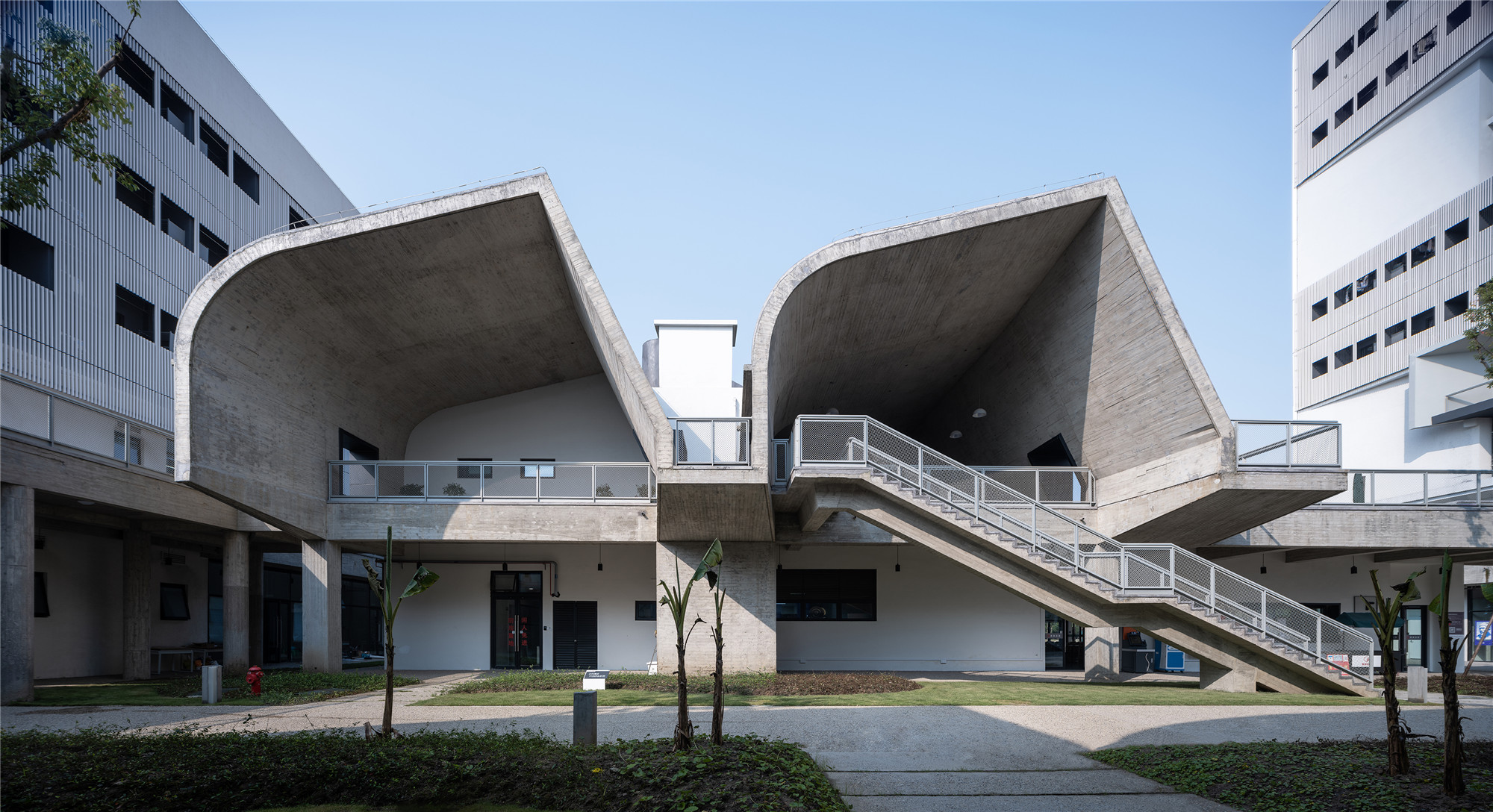

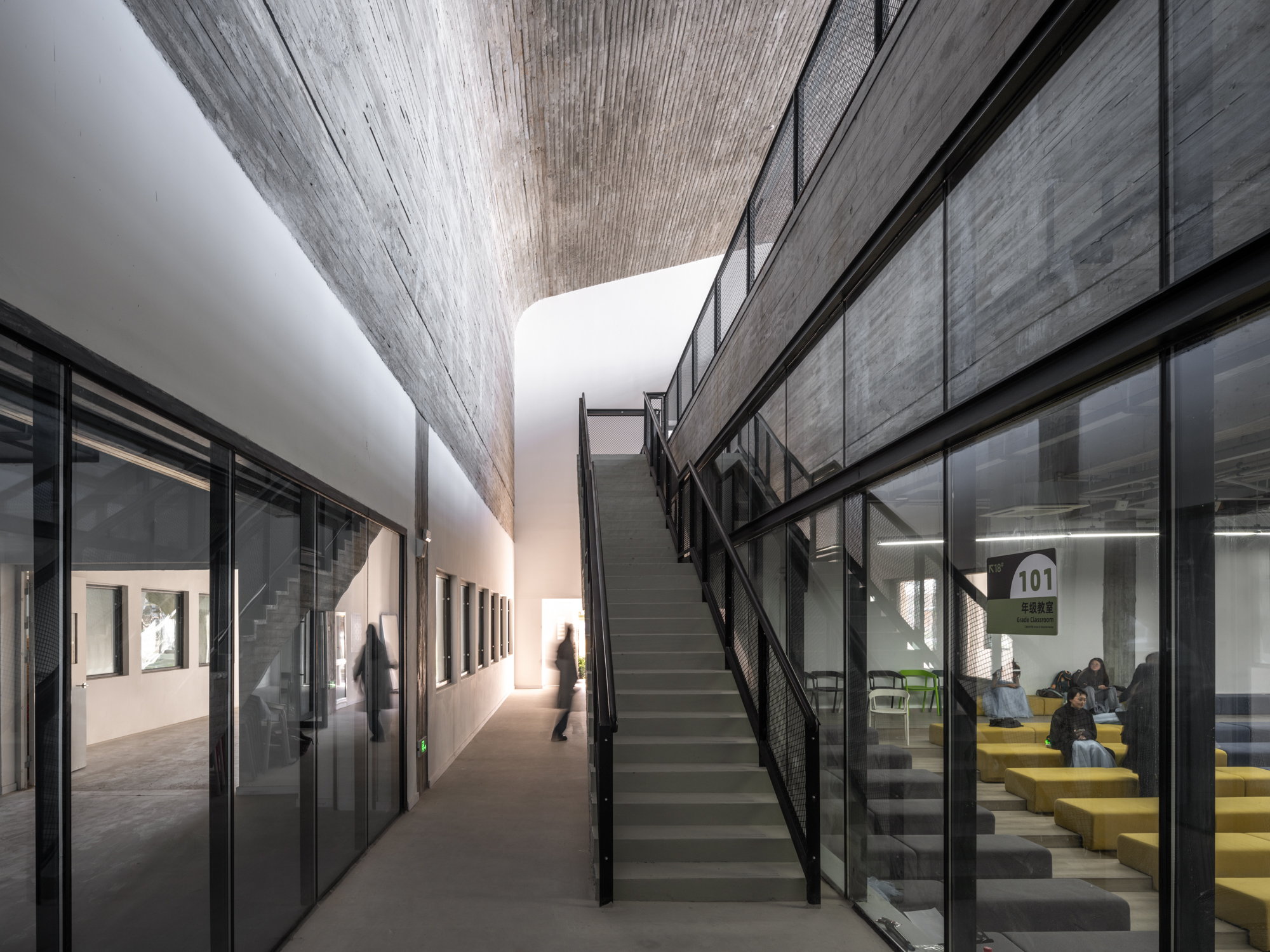
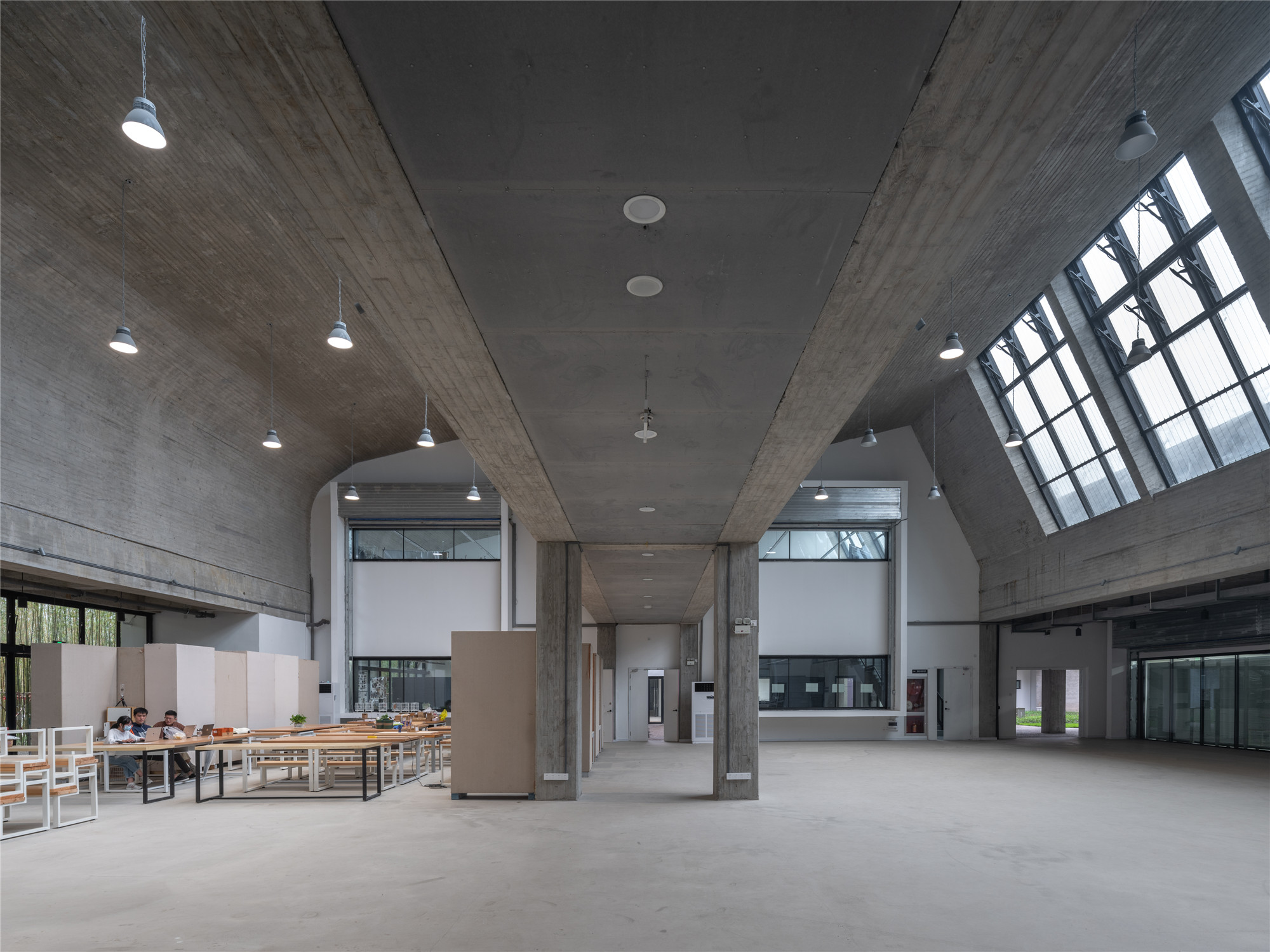
现在,除了日常的学习、研究、创作,设计评图是在工坊里经常举行的活动之一;根据规模的情况,班级的评图通常横向地使用工坊,跨班或跨年级的评图则更可能是纵向的。其它已在发生的活动还有展览、会议、电影、戏剧/舞蹈演出、大型装置的搭建,乃至羽毛球、军训等。工坊里也出现了食堂、咖啡馆和小卖部等设施。
In addition to everyday research and creative activities, design reviews are now a common event in the studios. Depending on scale, reviews within a class typically use the studio space in an east-west direction, while inter-class or inter-level reviews are more likely to occur in an north-south direction. Exhibitions, conferences, film screenings, drama or dance performances, large-scale installations, and even badminton and other sports are now also happening in the studios. Facilities such as cafeterias, cafes and convenient stores have been incorporated into the studios as well.
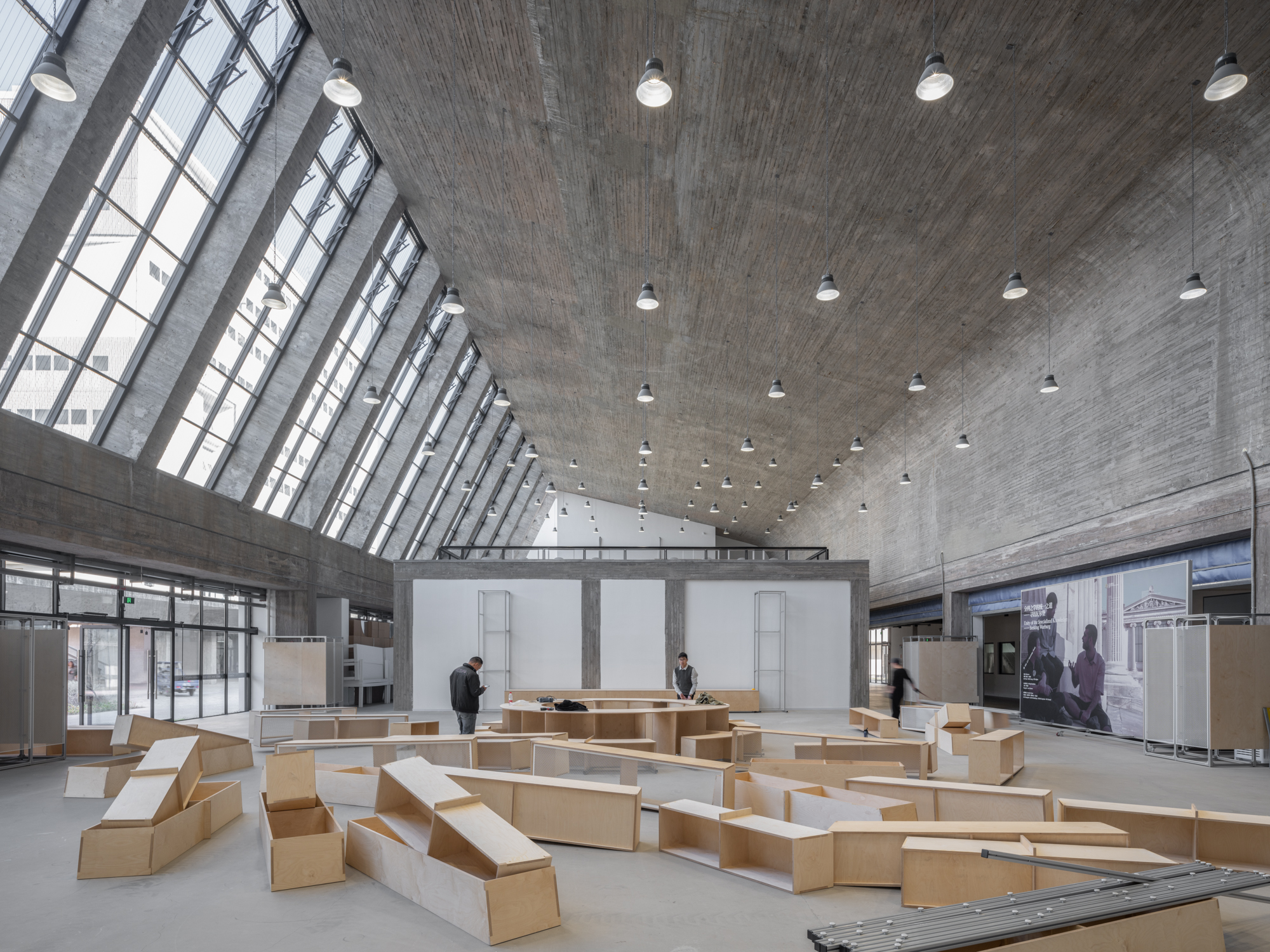
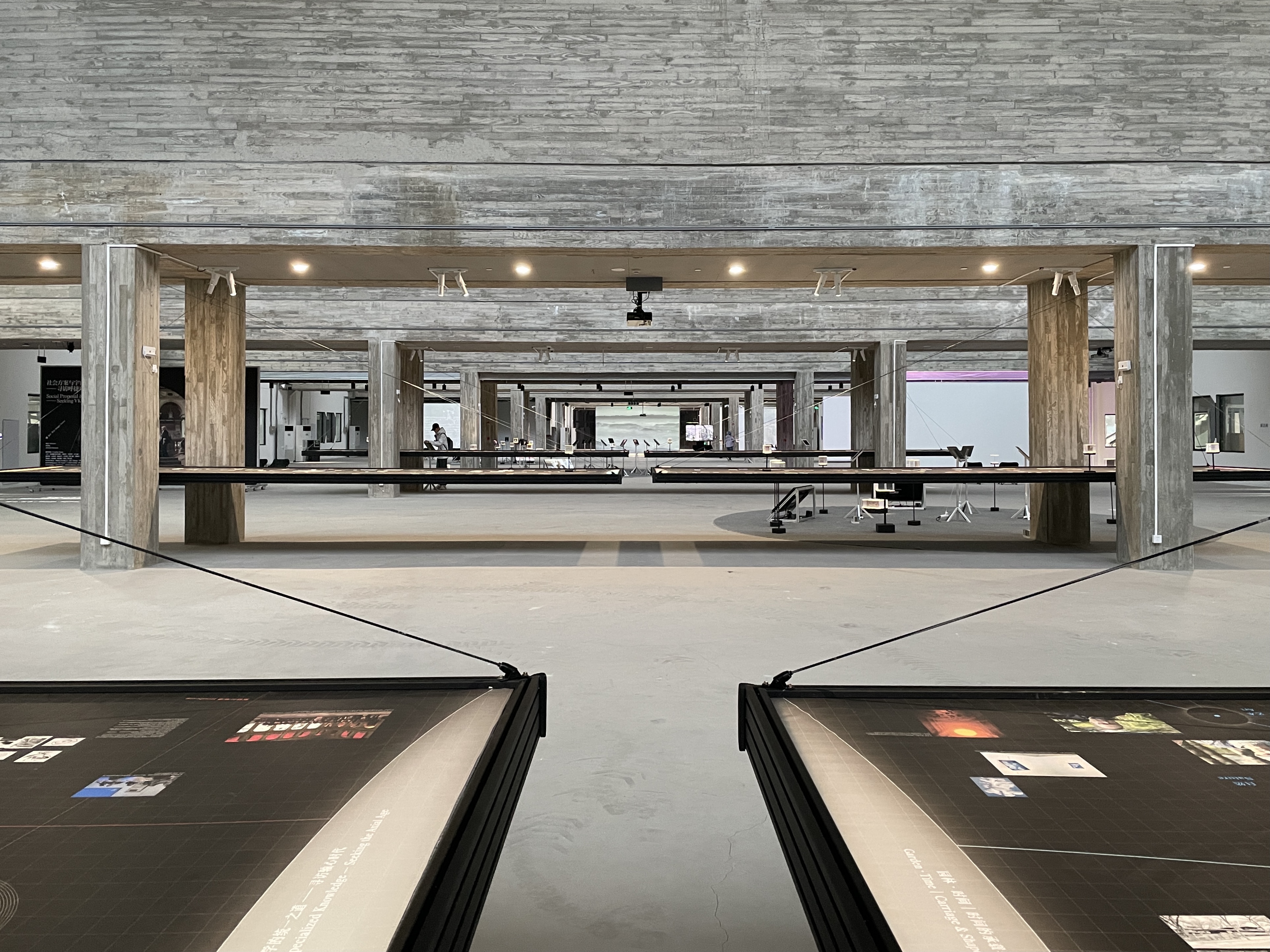

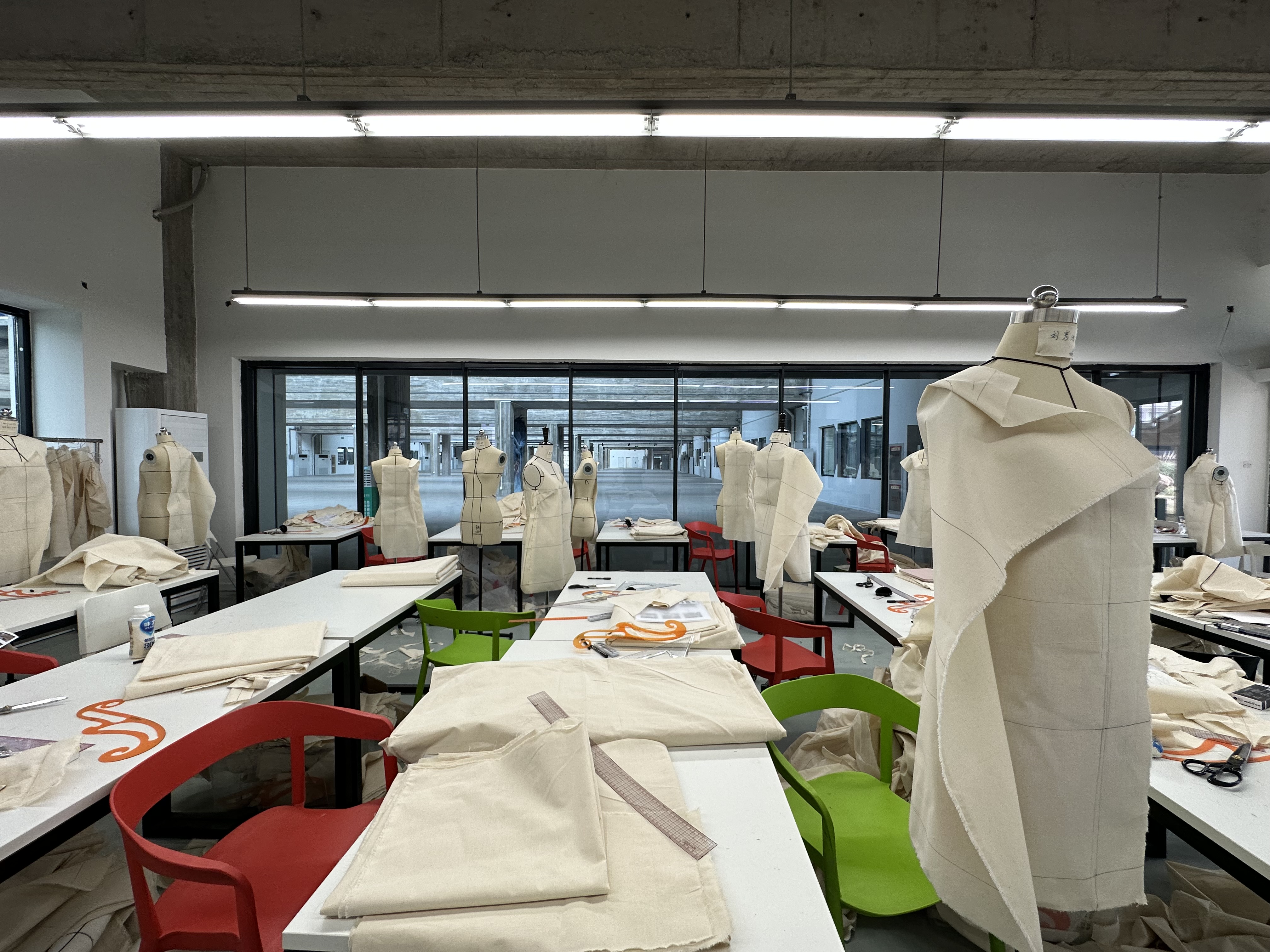
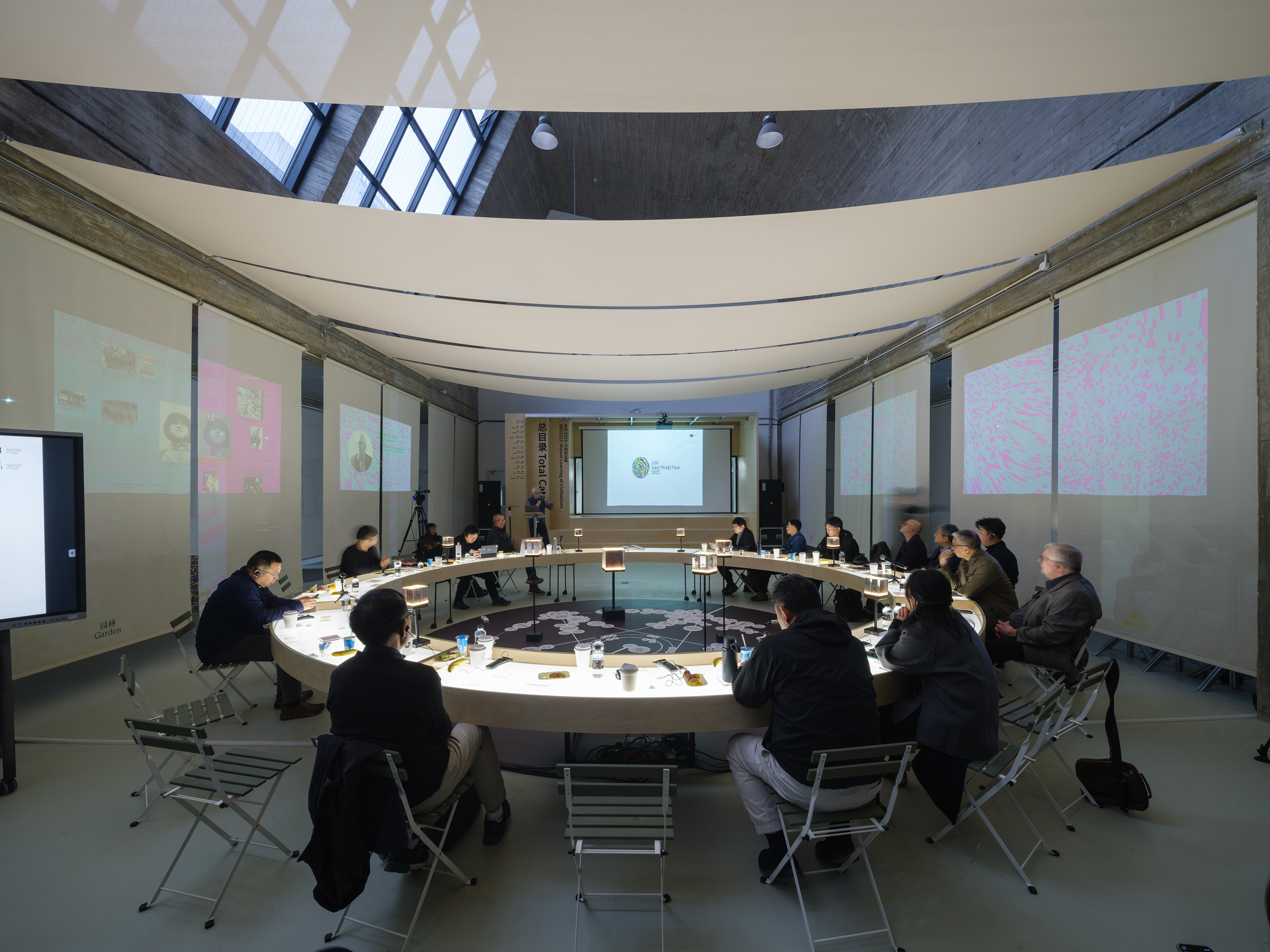
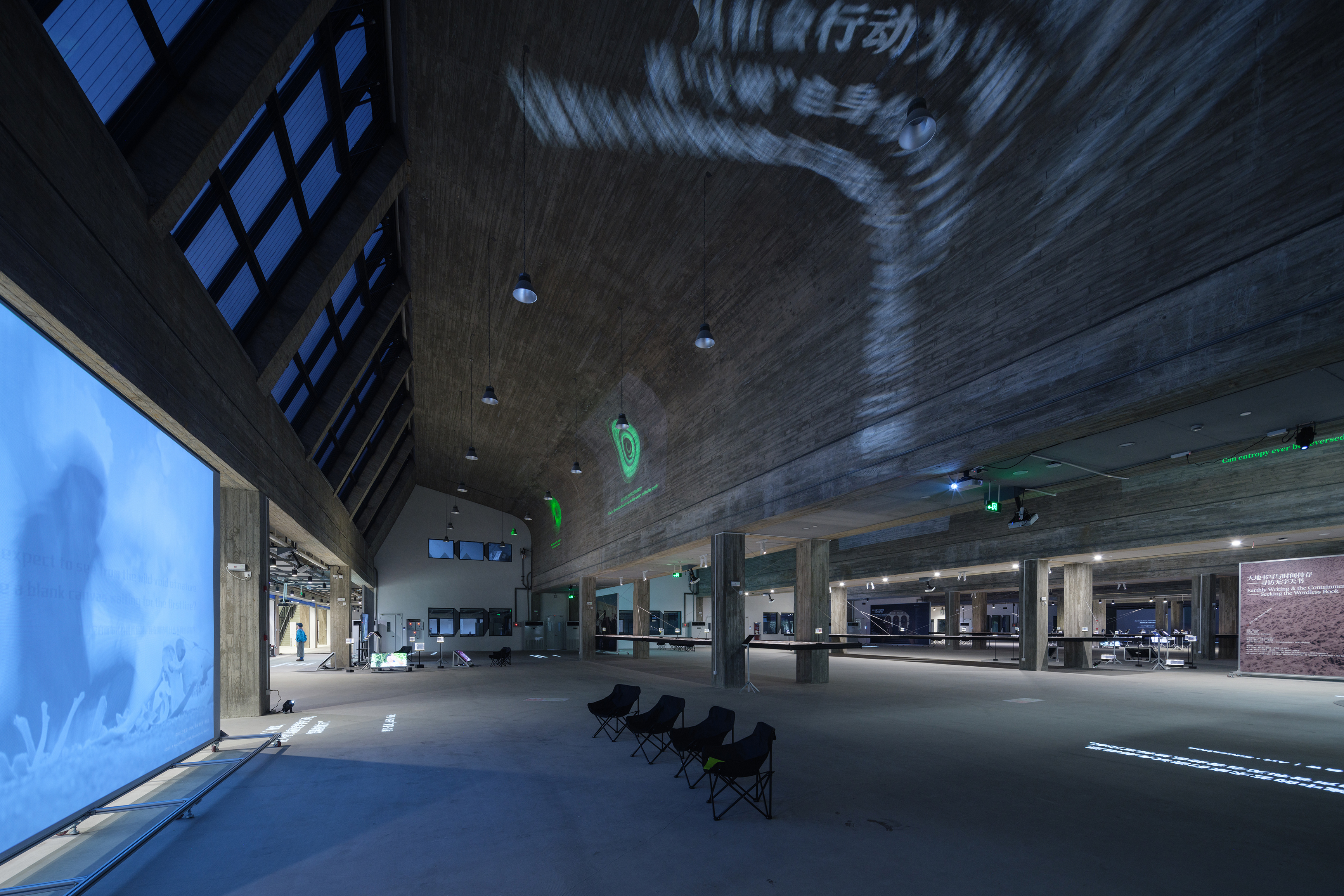
学舍
由于学舍在工坊的上方,学生可以在几分钟之内从寝室下到工坊。这种空间关系也带来了学生作息时间的改变,他们只需8点15分起床便能赶上8点半的第一节课。为了方便学生吃早餐,在工坊门外的廊下还设有早餐摊位。在学舍内部,每隔一层就有宽阔、二层通高的共享空间,打破了常规双边走廊的局限性,便于学生一起学习讨论或休息娱乐;也有建议让学生们将来自己设计、搭建该空间里的家具。
As the dormitories are located above the studios, students can descend from their living quarters to the workshops within minutes. This spatial arrangement has also led to changes in students' daily routines, as they can get up at 8:15 am and still make it to their 8:30 am classes. To facilitate breakfast for students, food stalls are available outside the studio entrances. Within the dormitories, there are spacious, double-height shared spaces every other floor, breaking away from the conventional double-loaded corridor layout, allowing students to study, discuss, or relax together. There is also a suggestion for students to design and build furniture for these spaces themselves in the future.
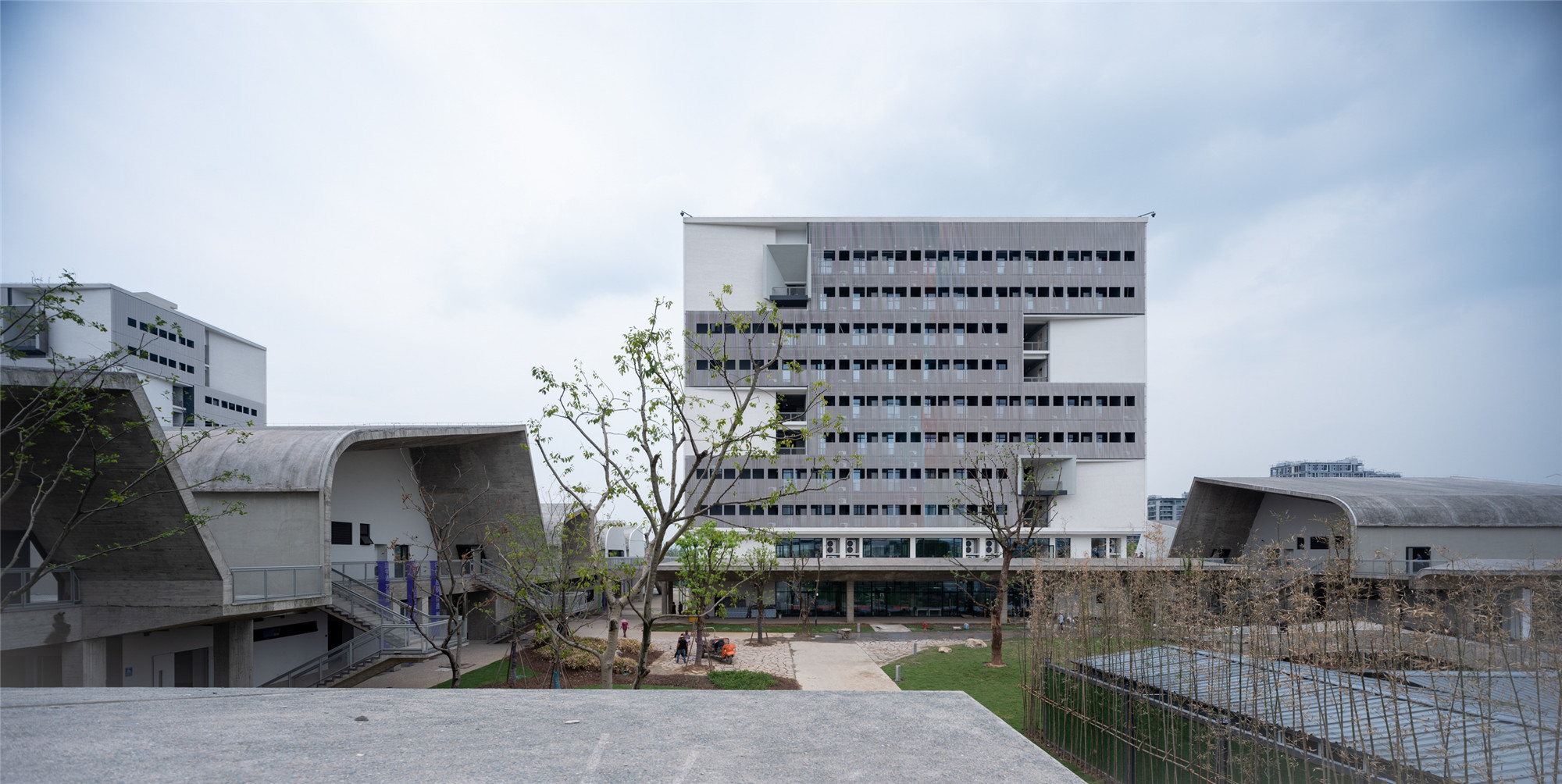

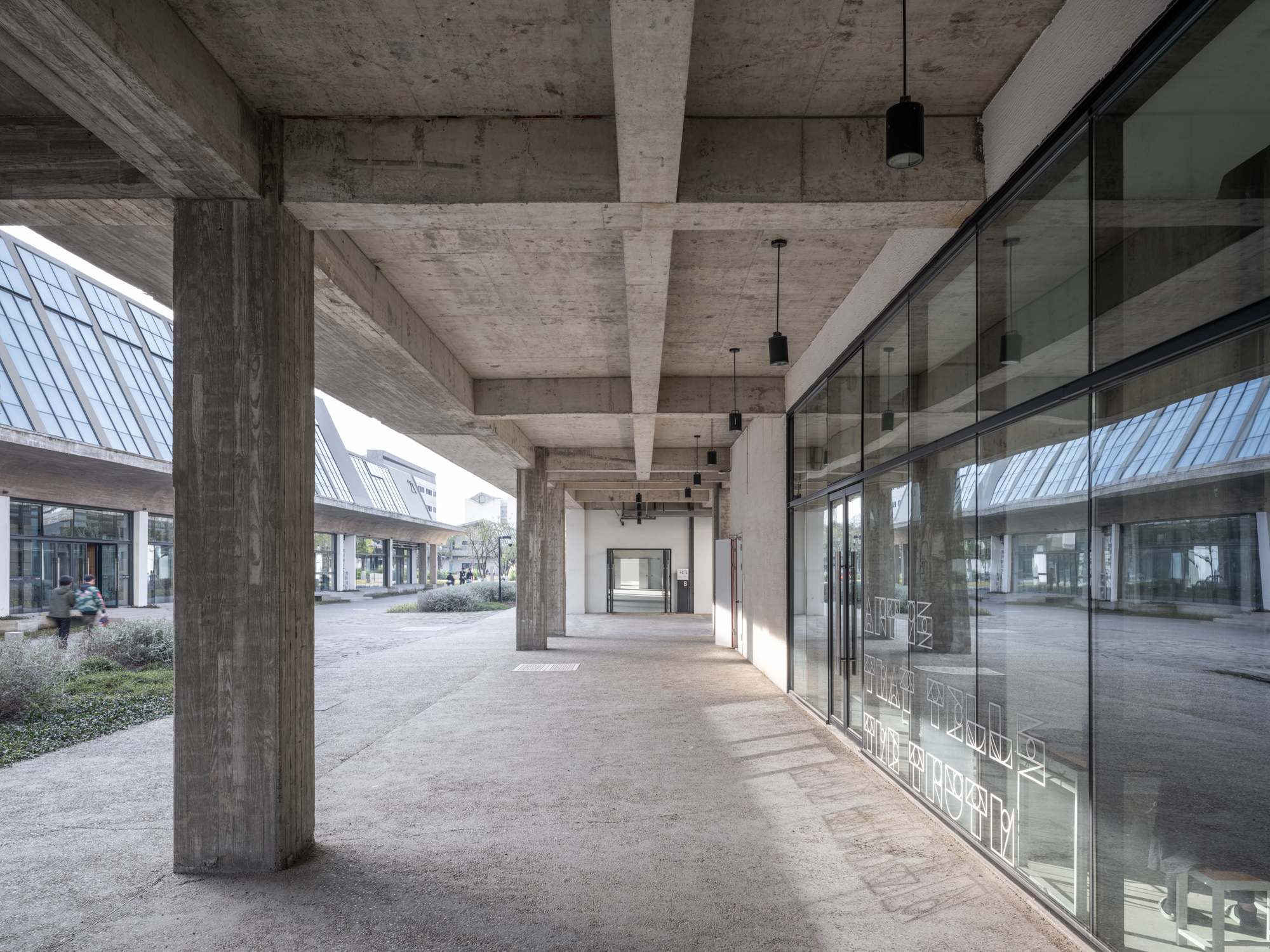

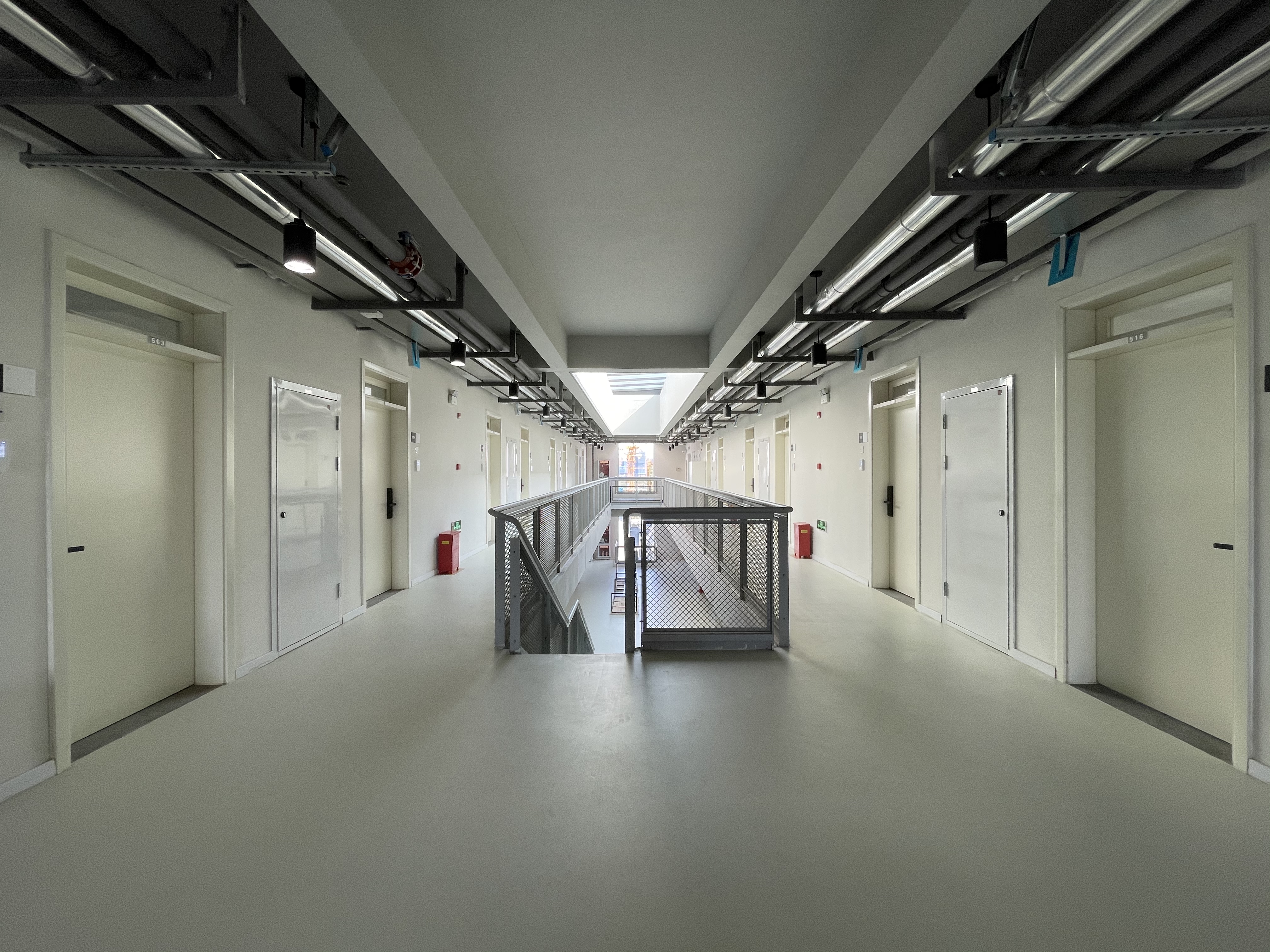
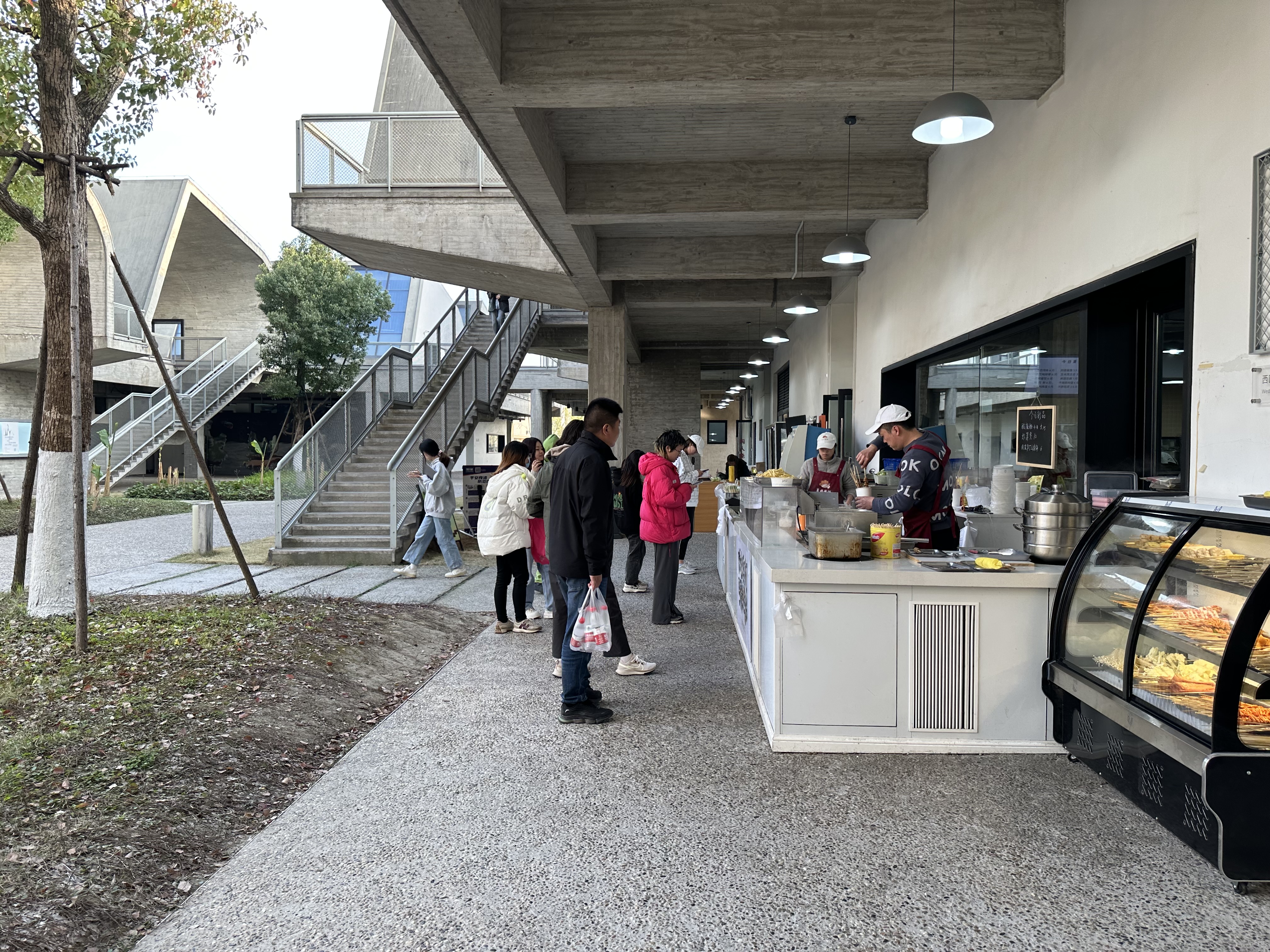
图书馆
图书馆内的空间组织是垂直的,即由9座塔楼构成。其中8座用作学习和研究,每一座塔内可以容纳包括几个子课题的大型研究项目或若干个独立的学习小组;第九座塔是一个所谓的“探索器”,本质上是一个纯建筑空间,是师生们放空冥想的去处。在学舍的屋顶上也有一系列探索器,校方计划一一激活开放。
The spatial organization of the library is vertical, consisting of nine towers; eight of them are dedicated to study and research, each capable of accommodating a large research project or several independent study groups within. While the ninth tower is a view-finder, essentially a pure architectural space, serving as a place for anyone to have a break and meditate. Additionally, there are a number of view-finders on the dorm roofs that will be activated by the university.
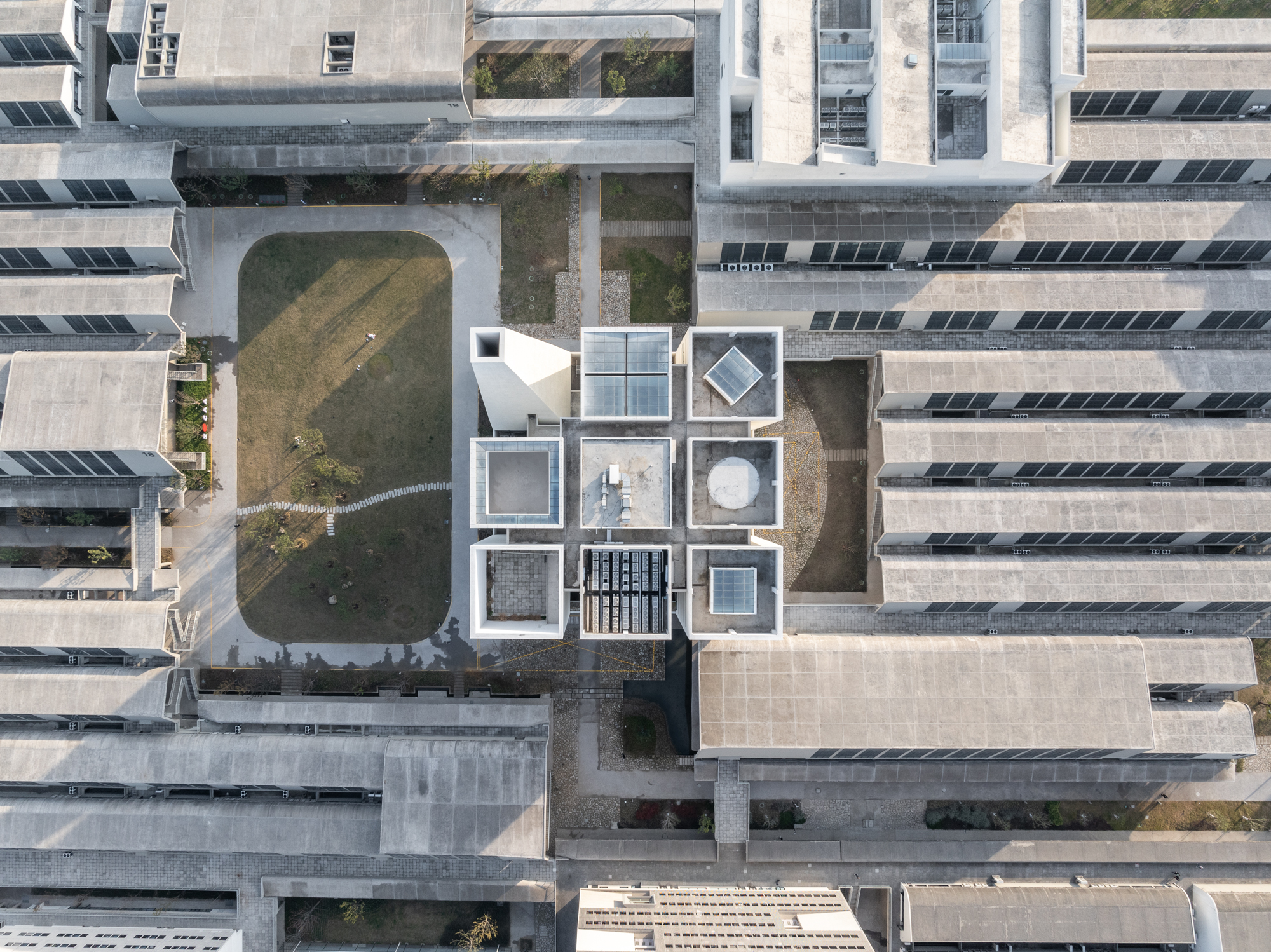

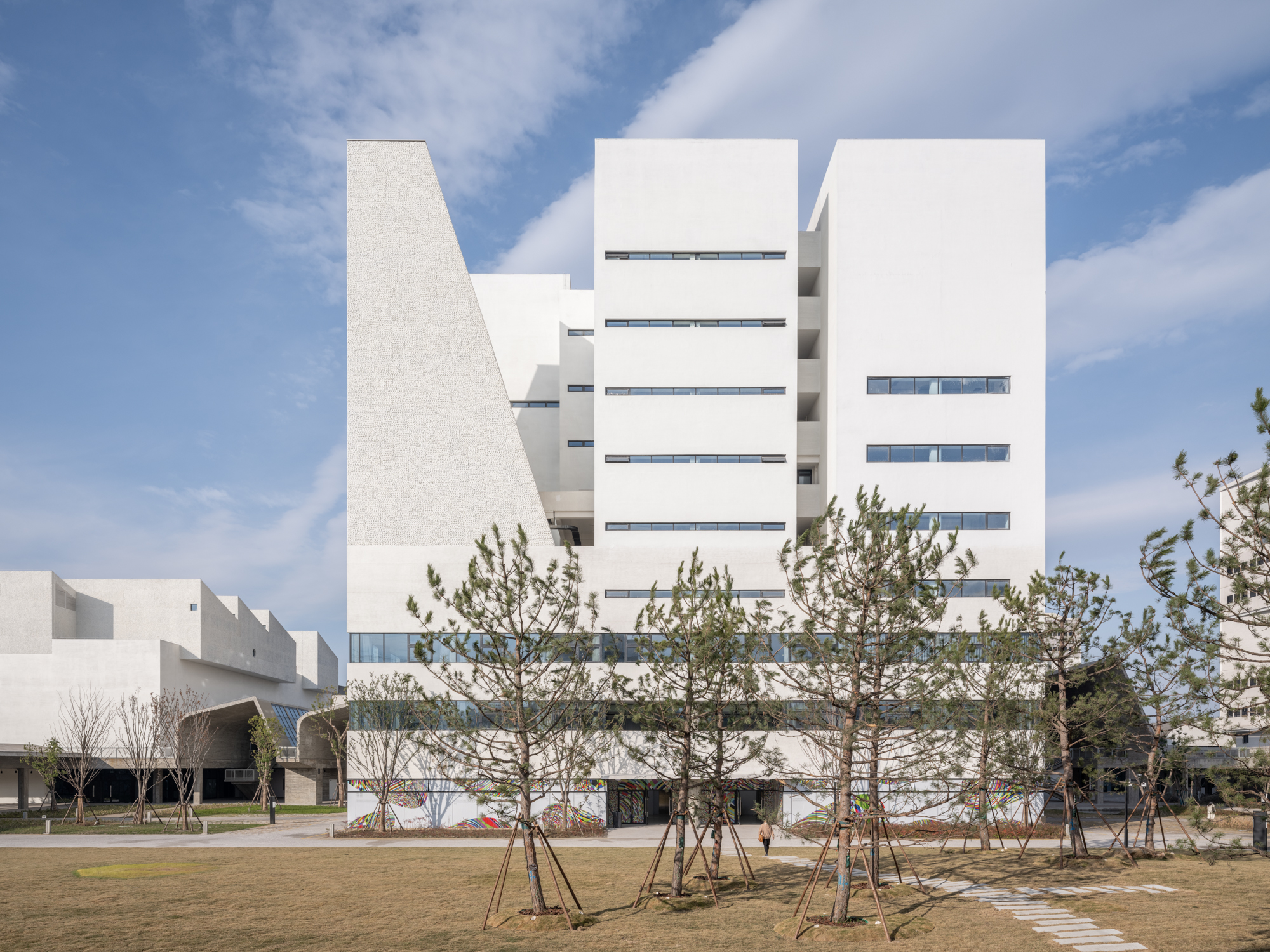
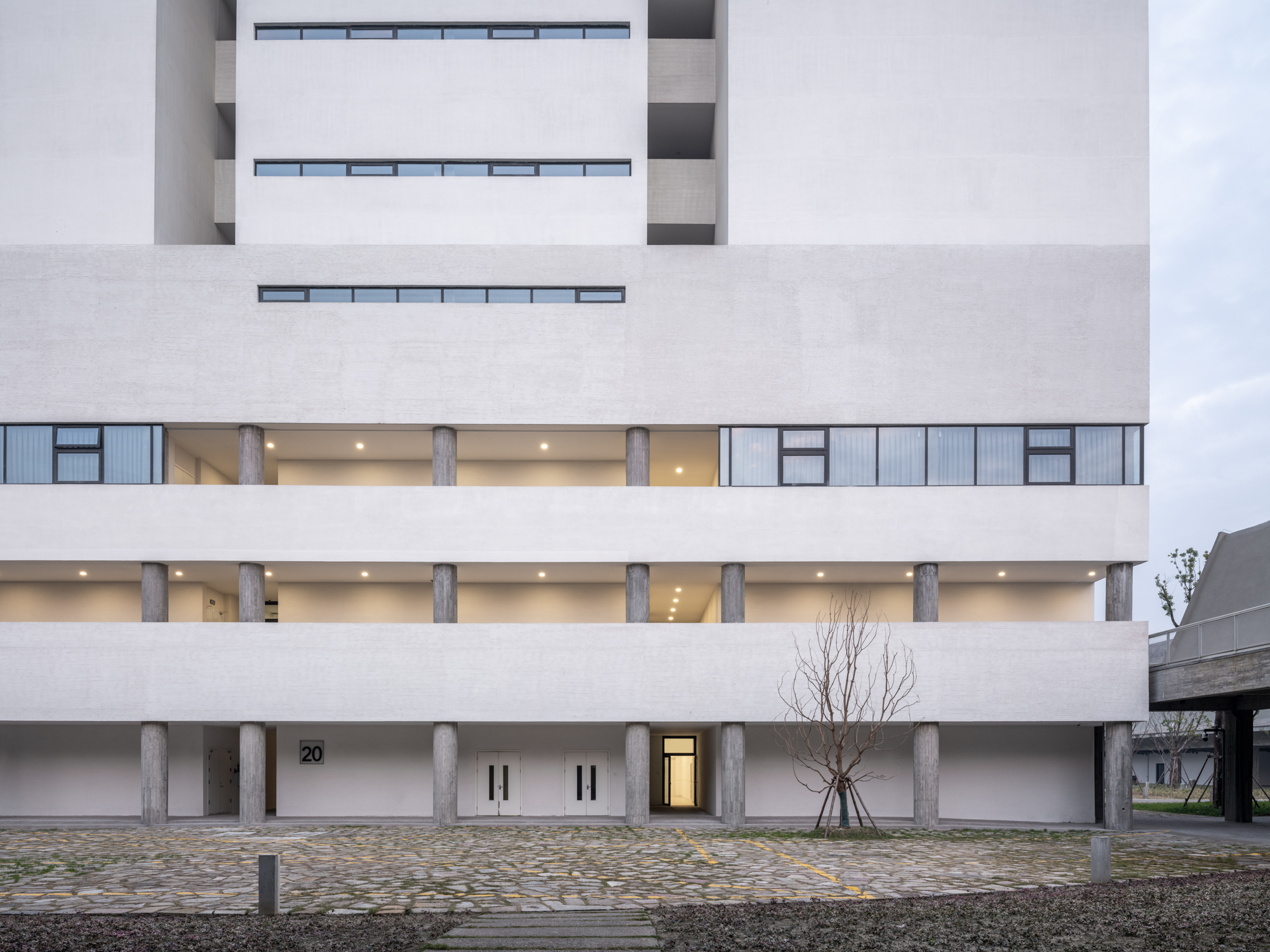
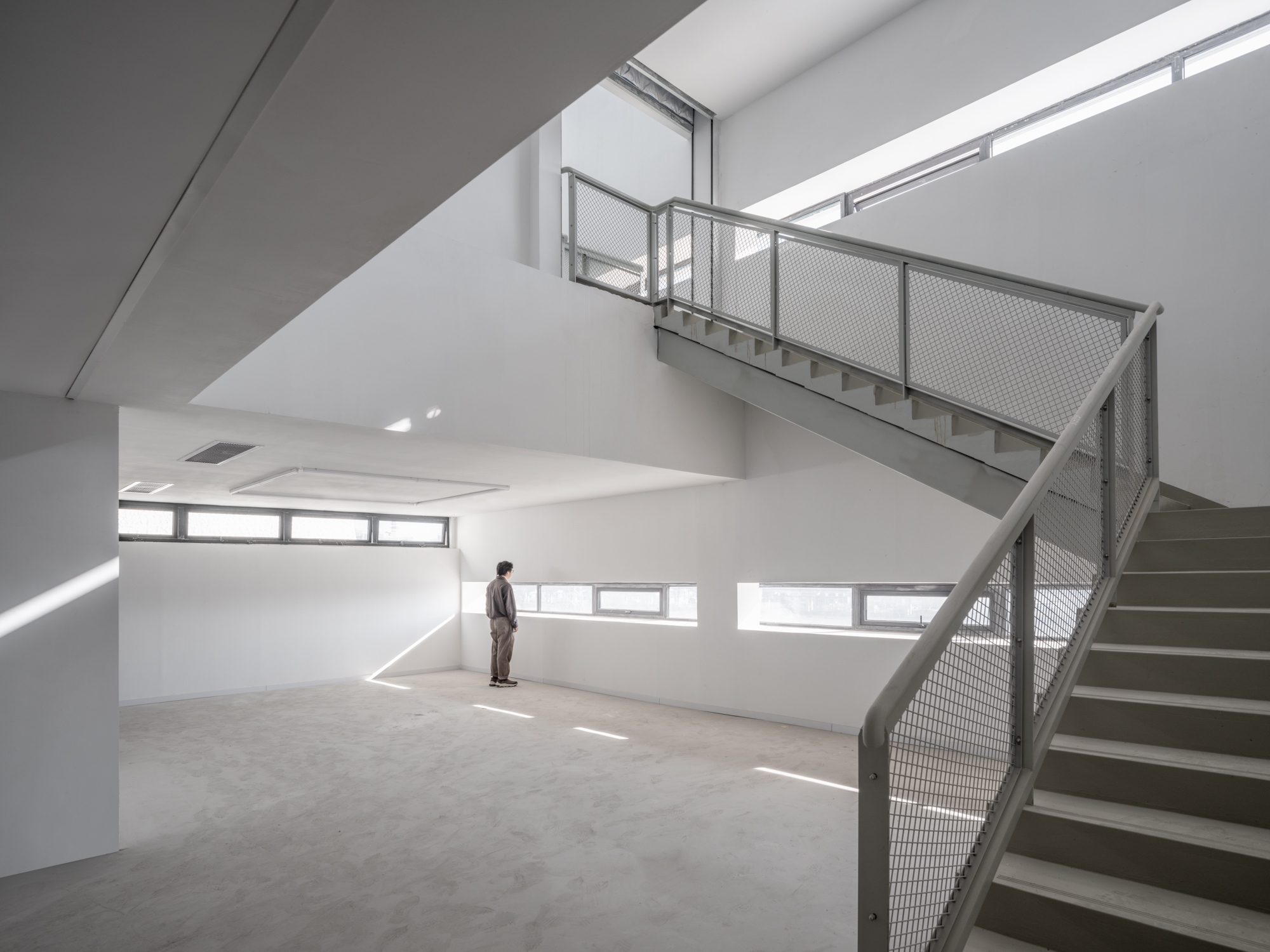
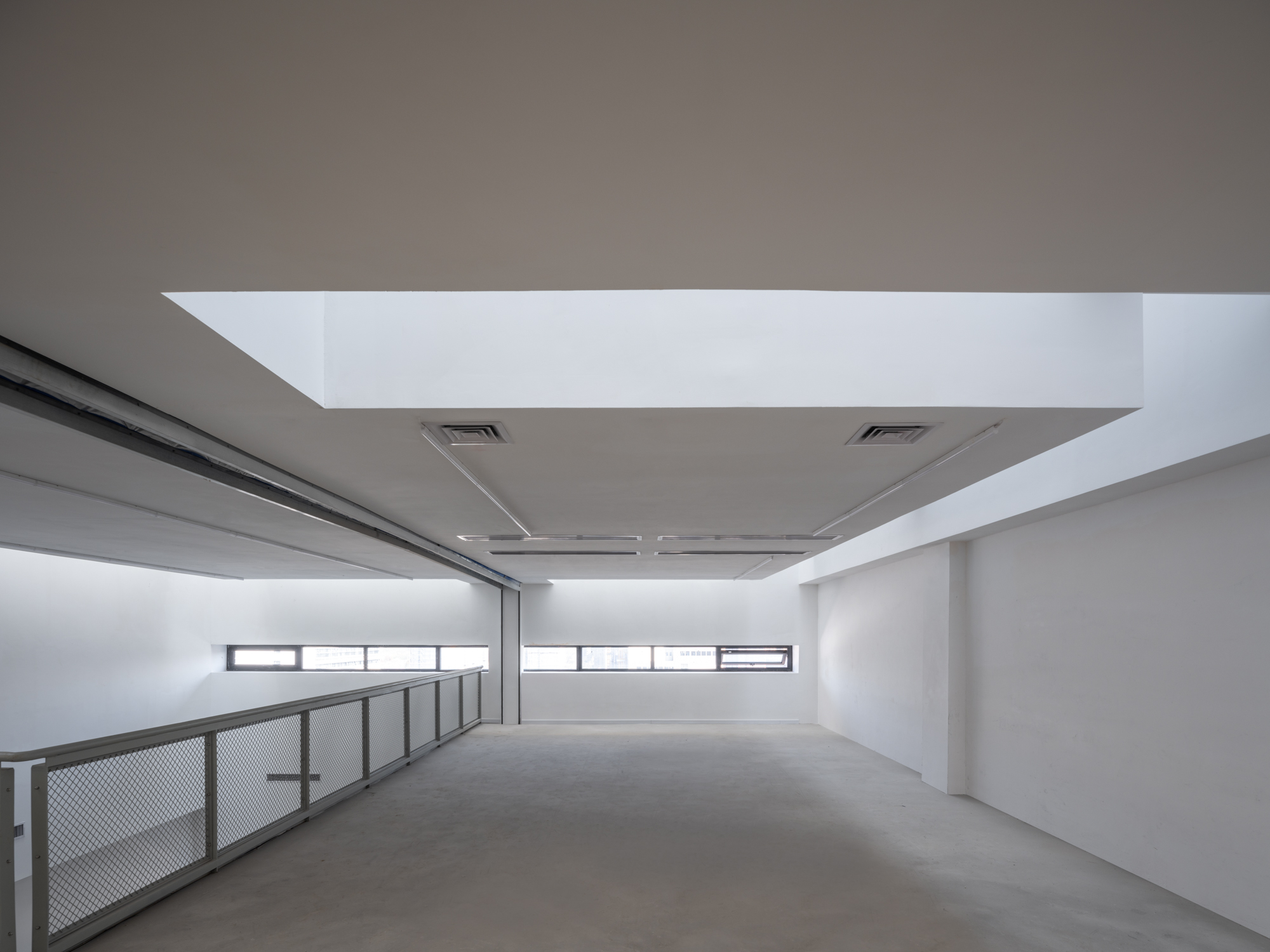

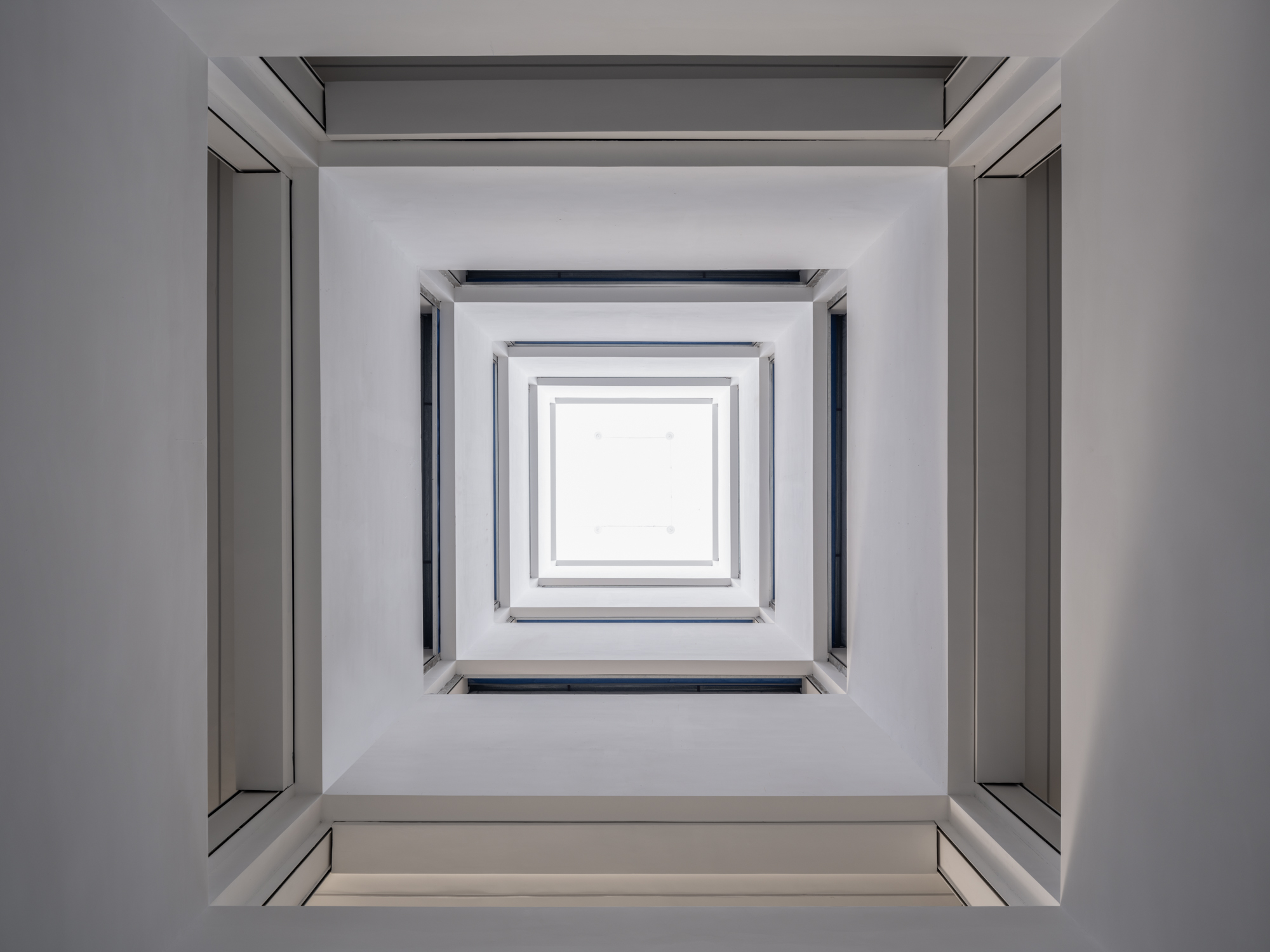
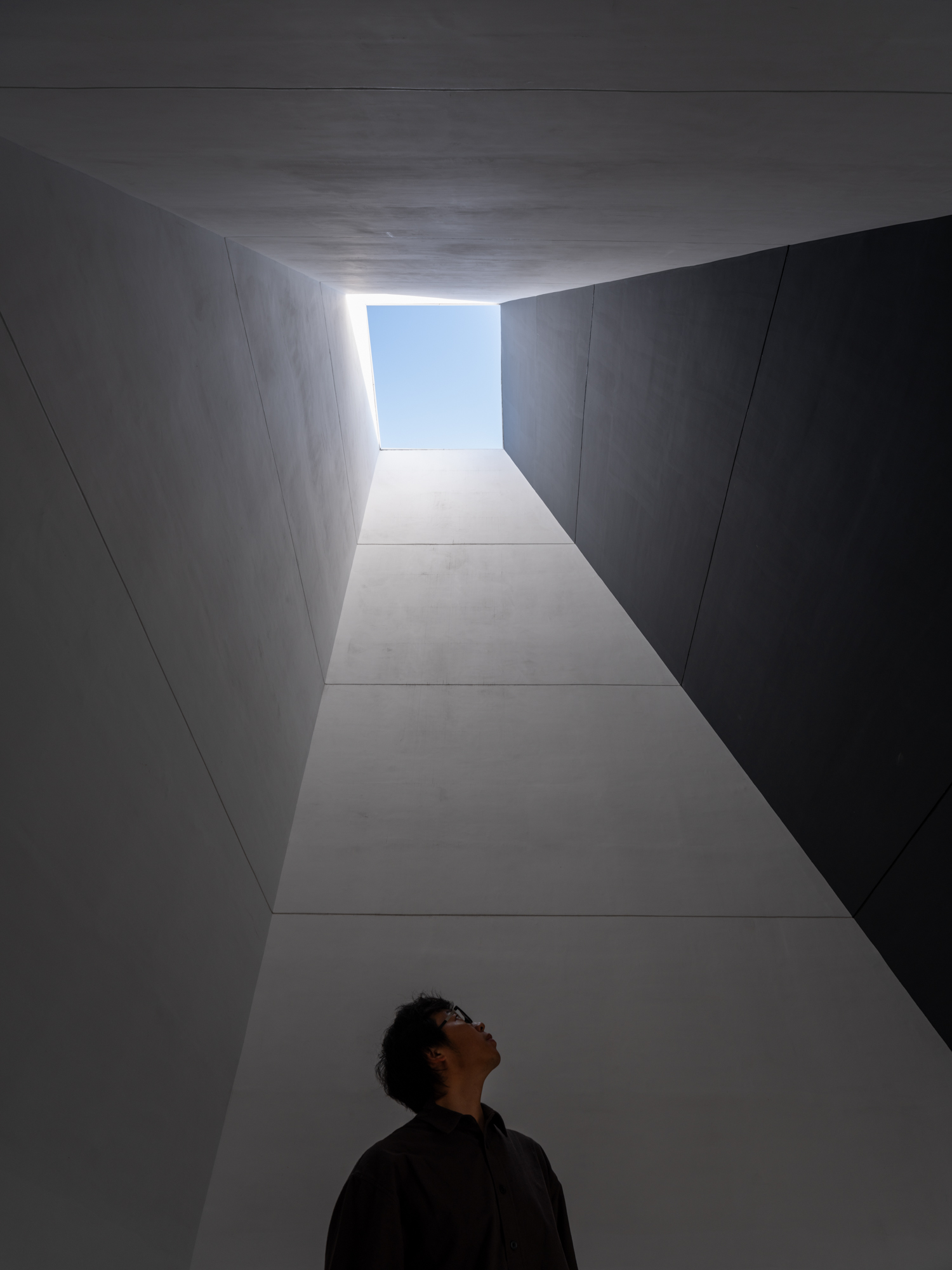
展览馆
展览馆内存在着两种类型的空间:首层的开放大尺度空间和上层的线性的小尺度空间,以适应不同展览和活动的需要。
The exhibition hall comprises two distinct types of spaces: expansive open areas on the ground floor for larger-scale exhibitions; linear, compact spaces on the upper floor tailored for smaller-scale exhibitions and activities.
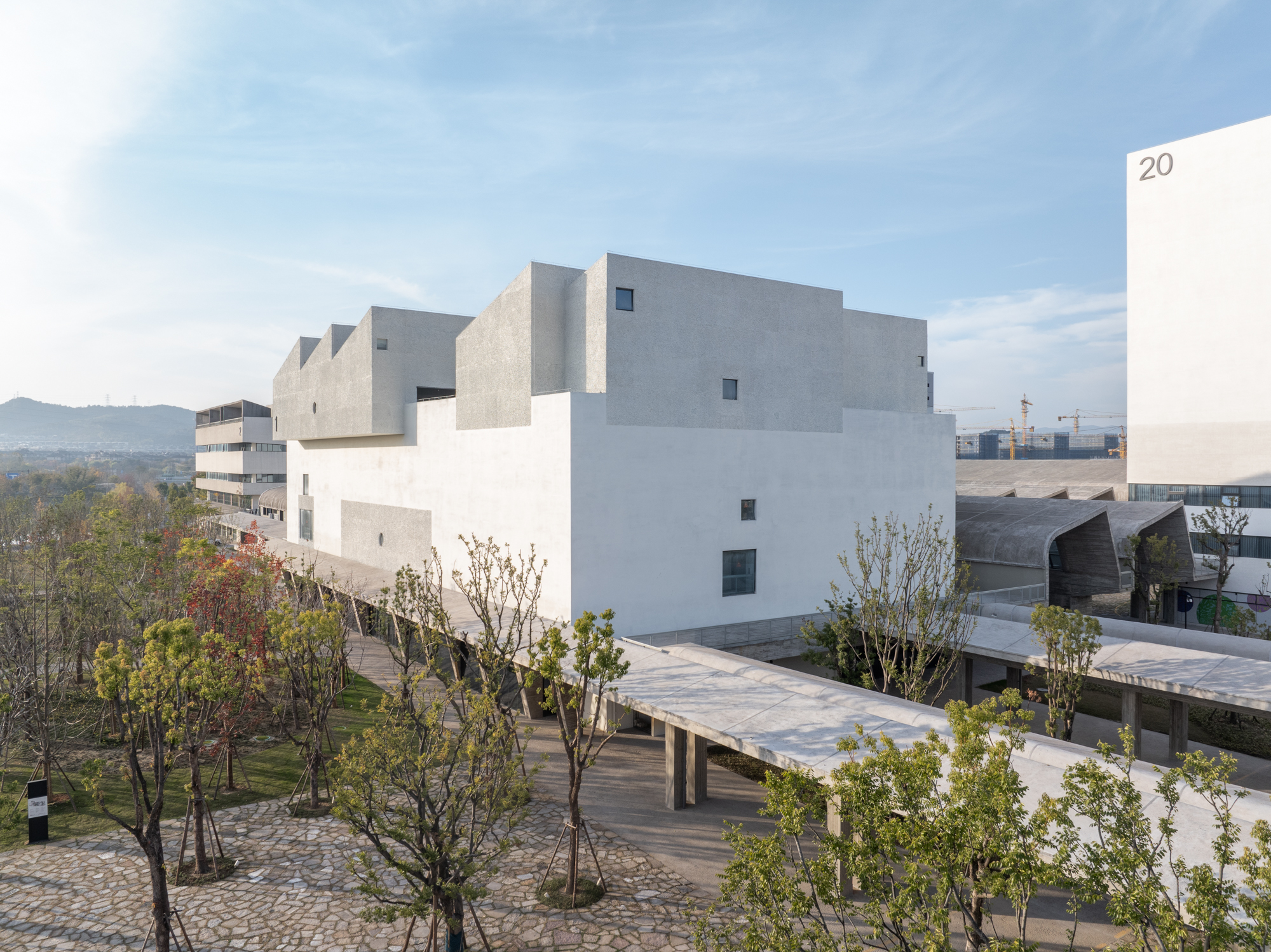
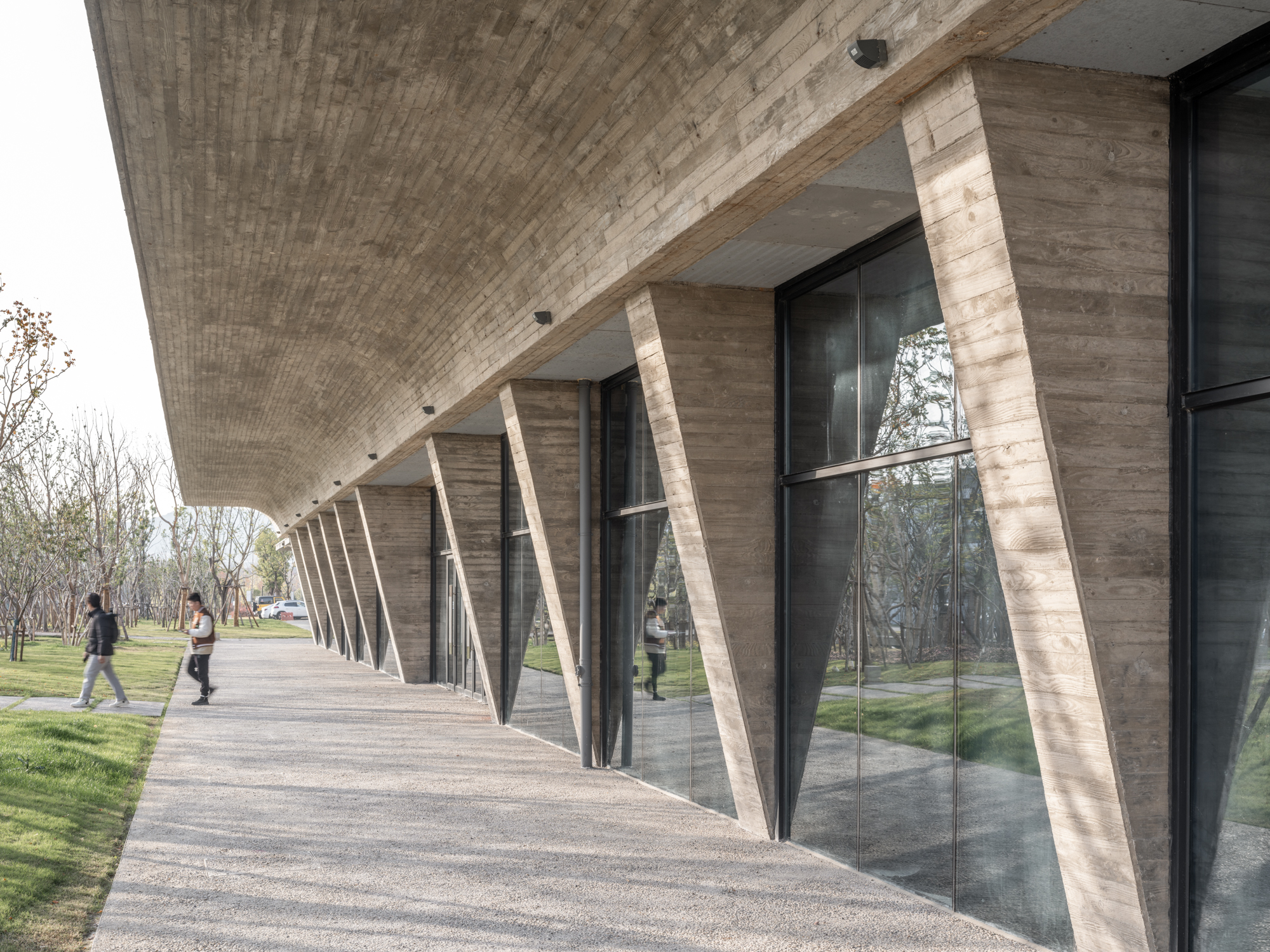
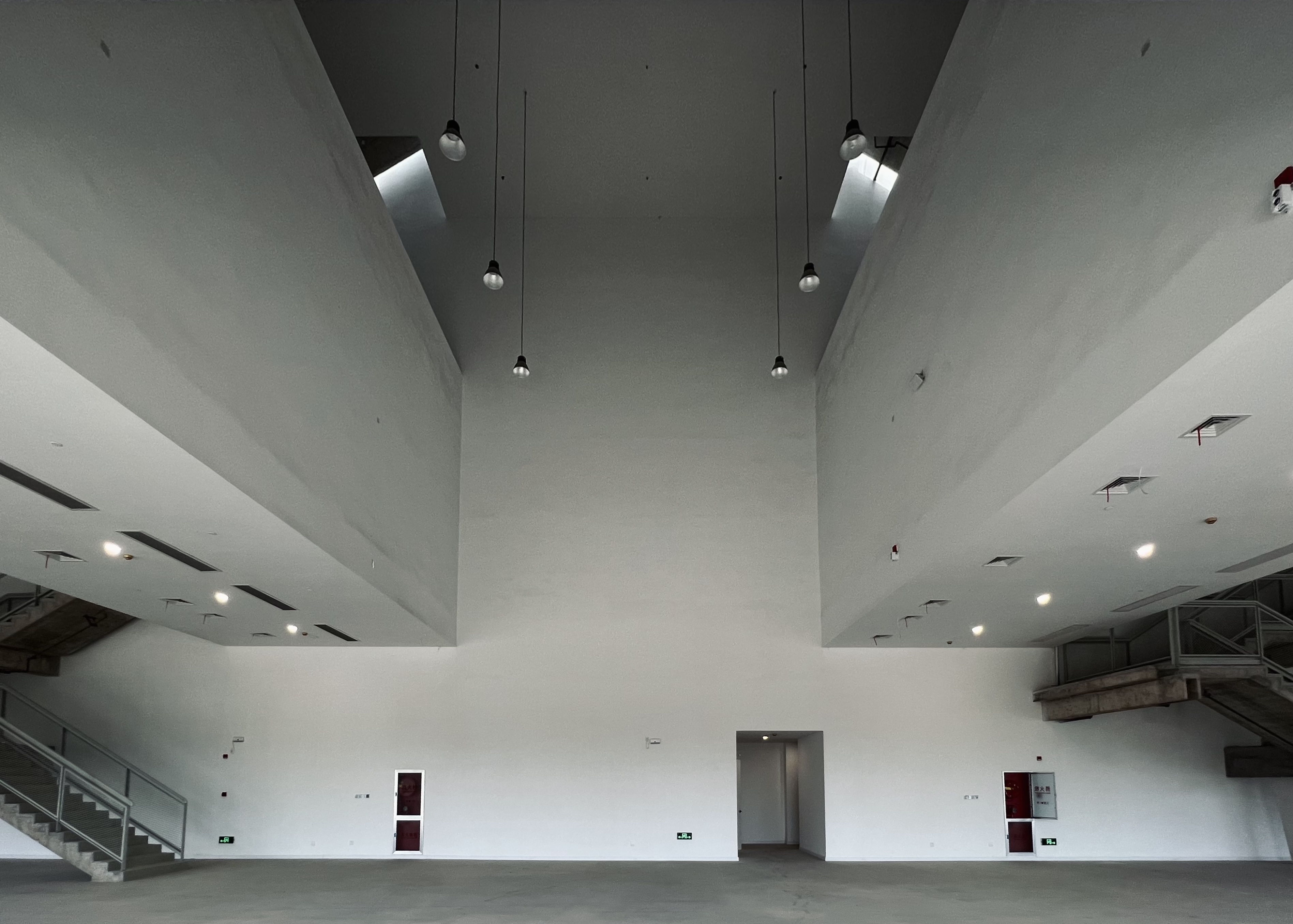
报告厅
作为一个封闭的阶梯式报告厅,报告厅本身的使用方法是特定的。但门厅仍然可以具备灵活性,如作举办展览、酒会之用。门厅的二层设有咖啡厅。即使报告厅里没有活动,咖啡厅也仍然营业。
As a typical lecture theater, the usage of the auditorium per se is specific. However, the program in the lobby can still be flexible, such as a venue for exhibitions or parties. There is a coffee shop on the mezzanine floor of the lobby, and it is open regularly even when there aren't any events taking place in the auditorium.
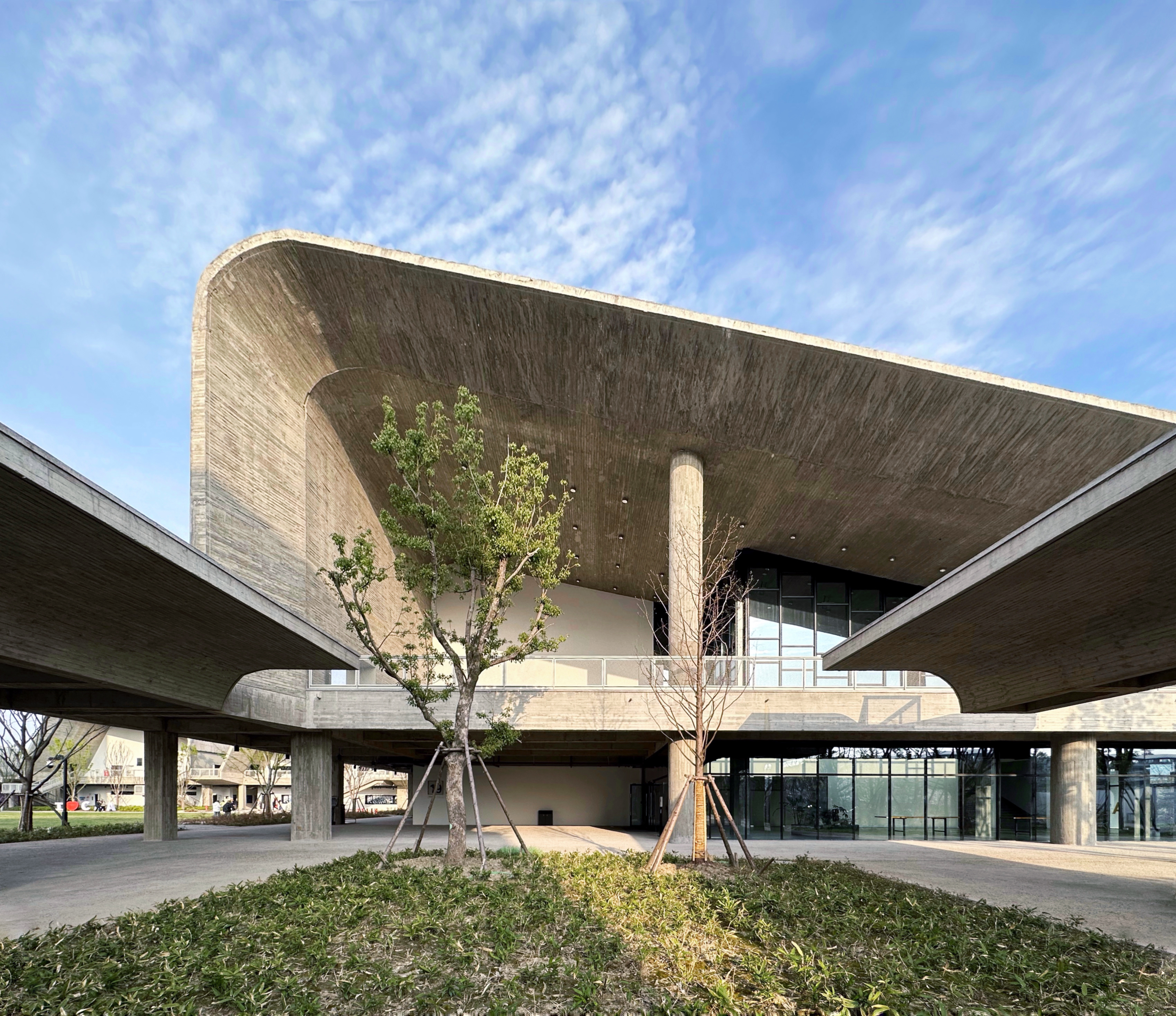
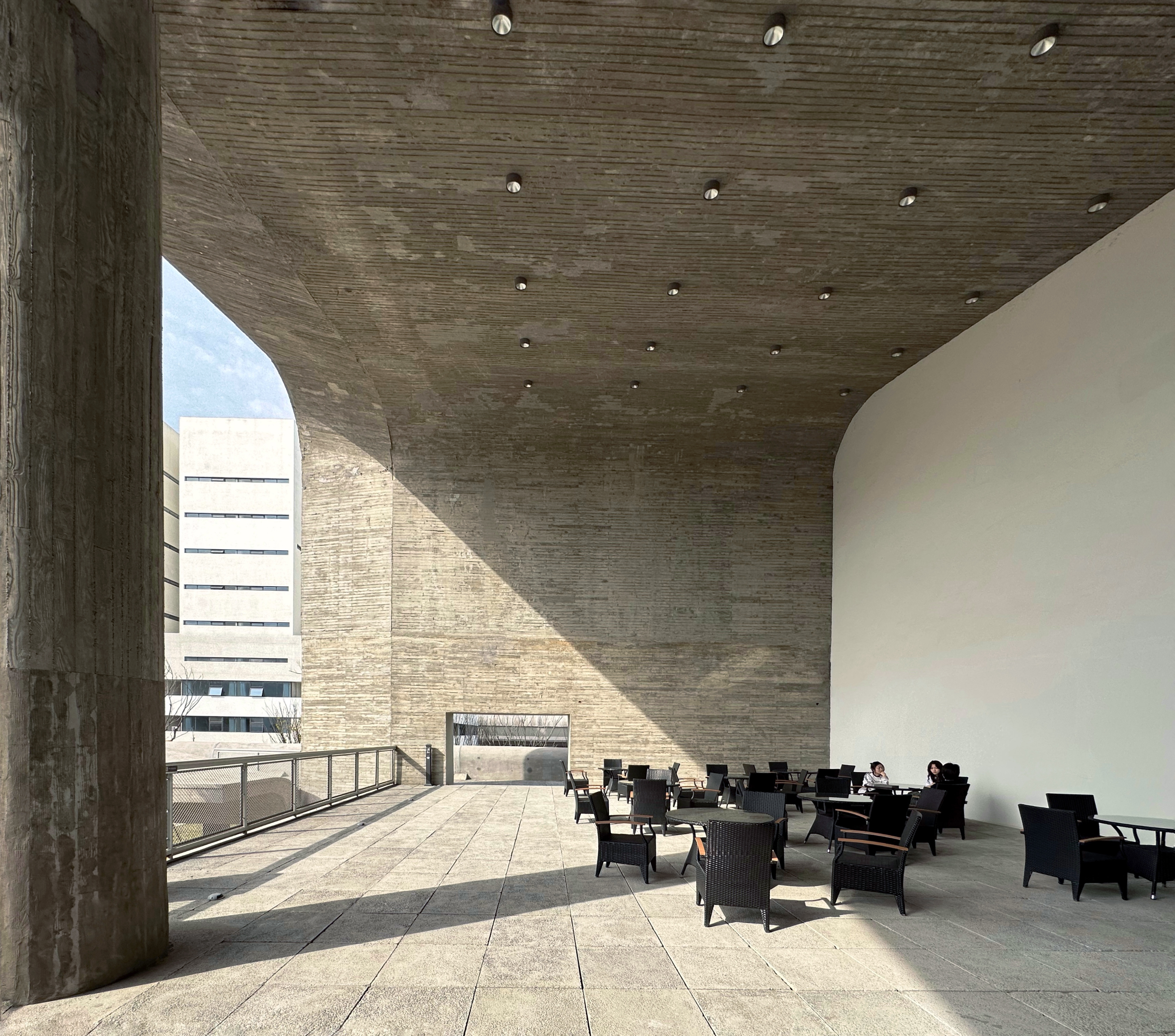
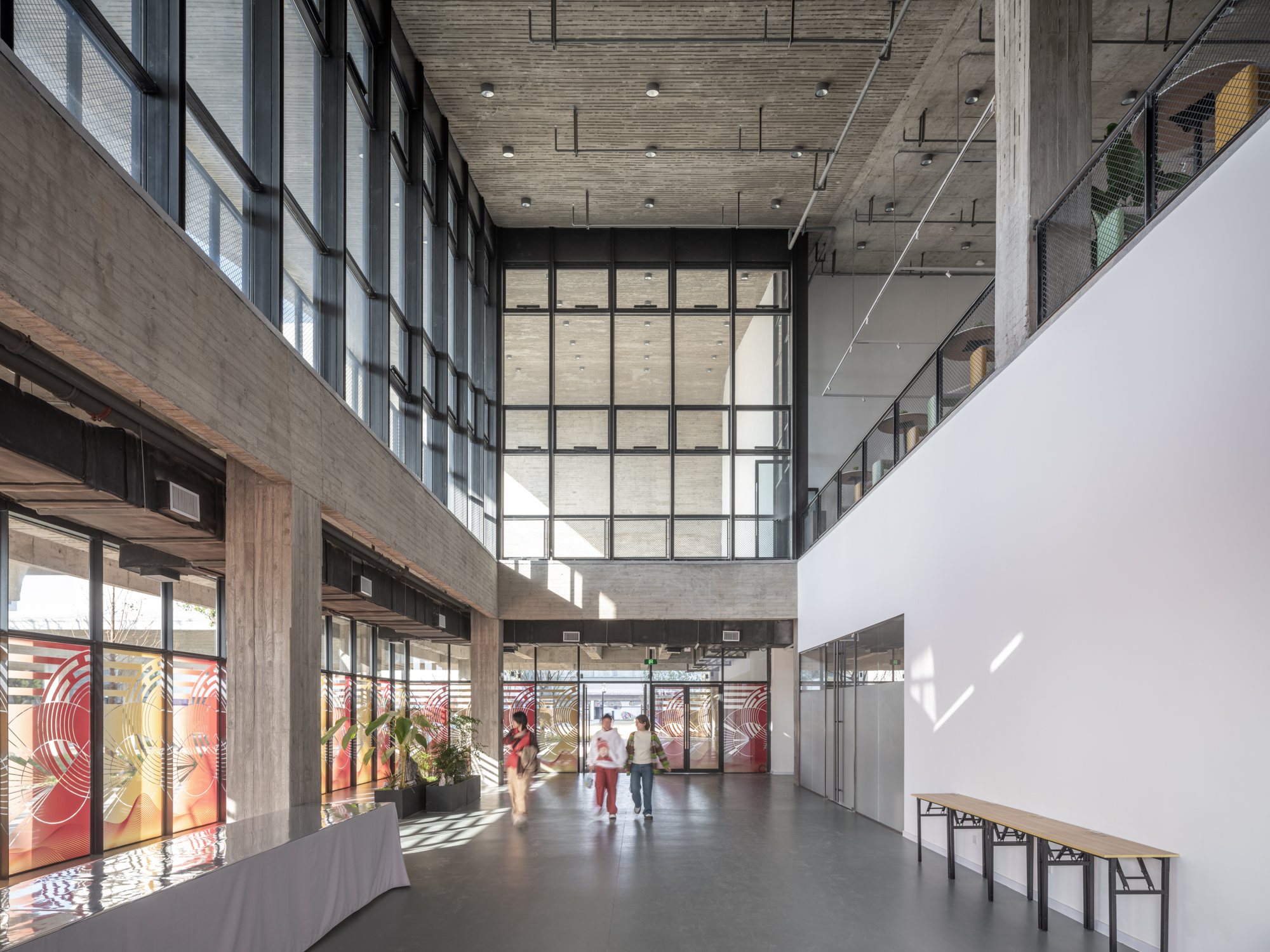
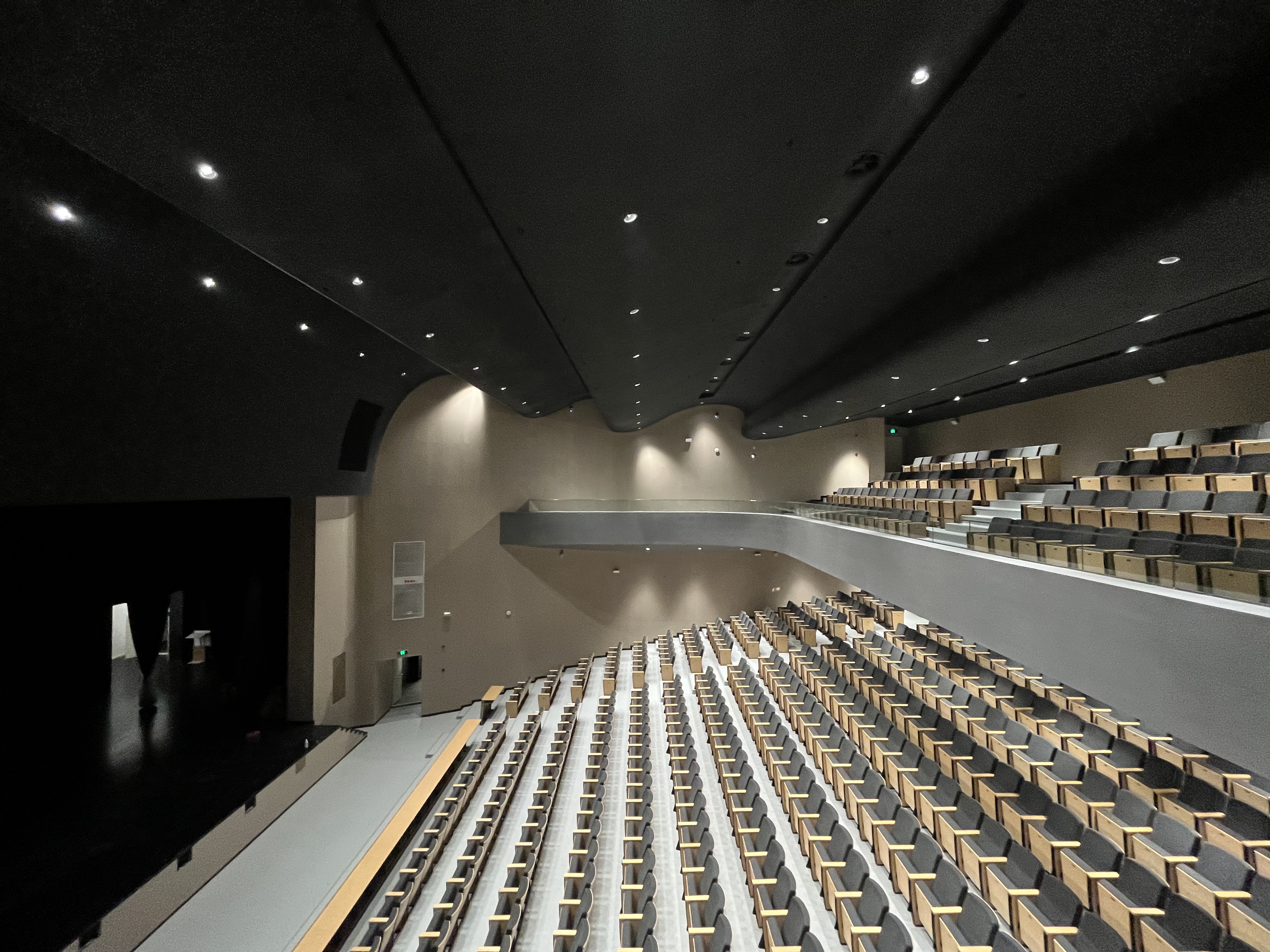
体育馆
体育馆实质上是一个单一的大空间,为联排拱券屋顶覆盖。它的单纯性很容易转化为高度的适应性。目前,它即为平日各种体育项目训练比赛提供场地,同时也是大型的会议、庆典、宴会等举行的所在。它的空间质量又与报告厅不同,体育馆的平地面是多功能的前提,并具备自然采光。
The gymnasium is essentially a single large space covered by a series of vaults. Its simplicity lend well to high adaptability. Currently, it serves as a venue for various sports training and competitions usually and also hosts large-scale events such as conferences, celebrations, and banquets frequently. Unlike the typical auditorium, spatially the gymnasium's flat floor invites multifunctionality and its natural lighting creates an agreeable ambiance.
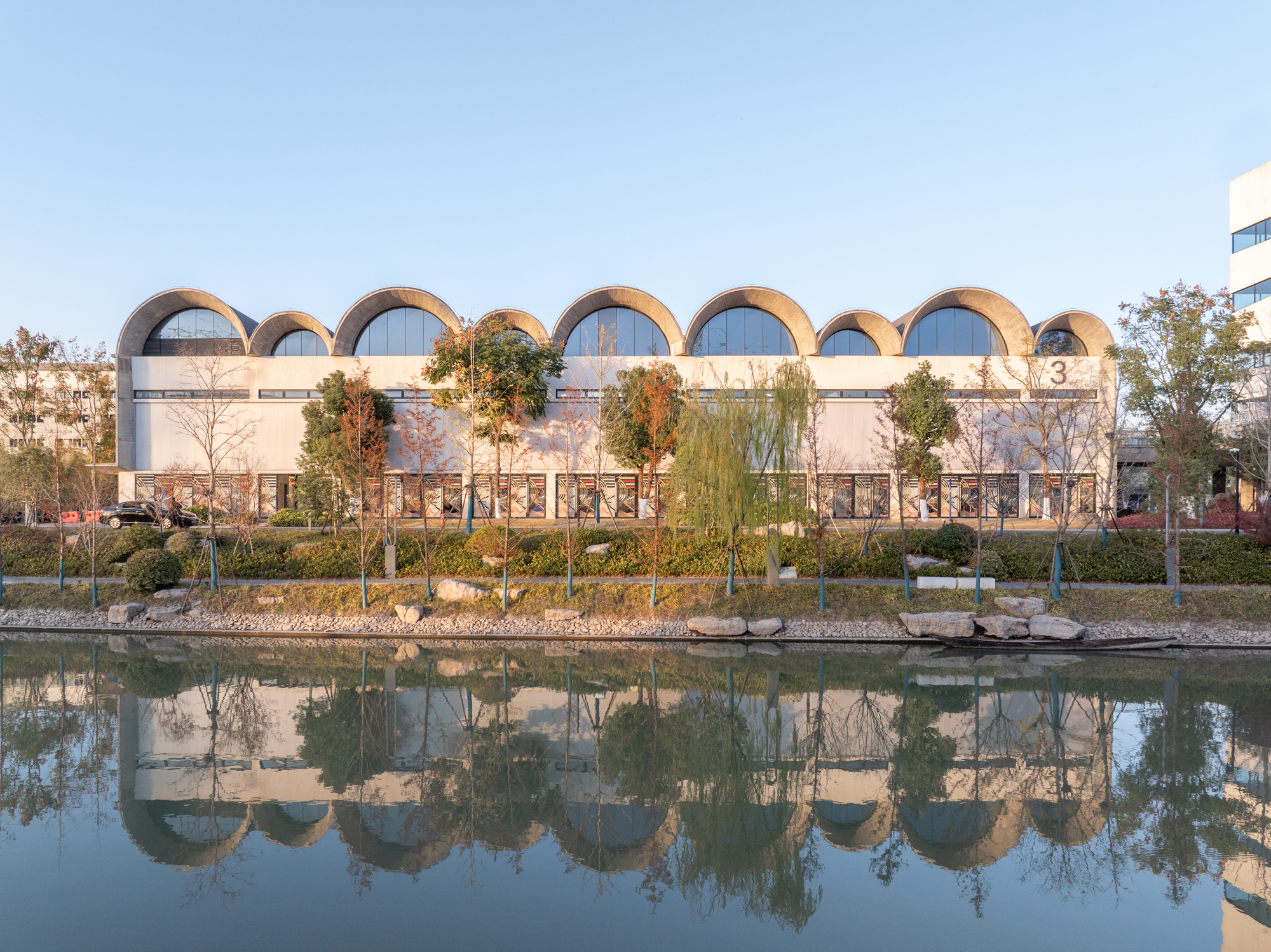


行政楼
行政楼的空间模型没有采用传统的办公模式,即双边走廊或开放平层,而是选择了剖面上空间感受丰富的错层单边走廊。行政办公对空间无特定要求,我们的设计考虑了将来该建筑做教学或研究等其它使用的可能性。
The design of the administration building diverges from the traditional office layouts of double-loaded corridors or open floor plan. Instead, it features sectionally a staggered single-loaded corridor formation to provide rich spatial experiences. The administrative office is designed with flexibility in mind, potentially accommodating uses such as teaching or research in the future.
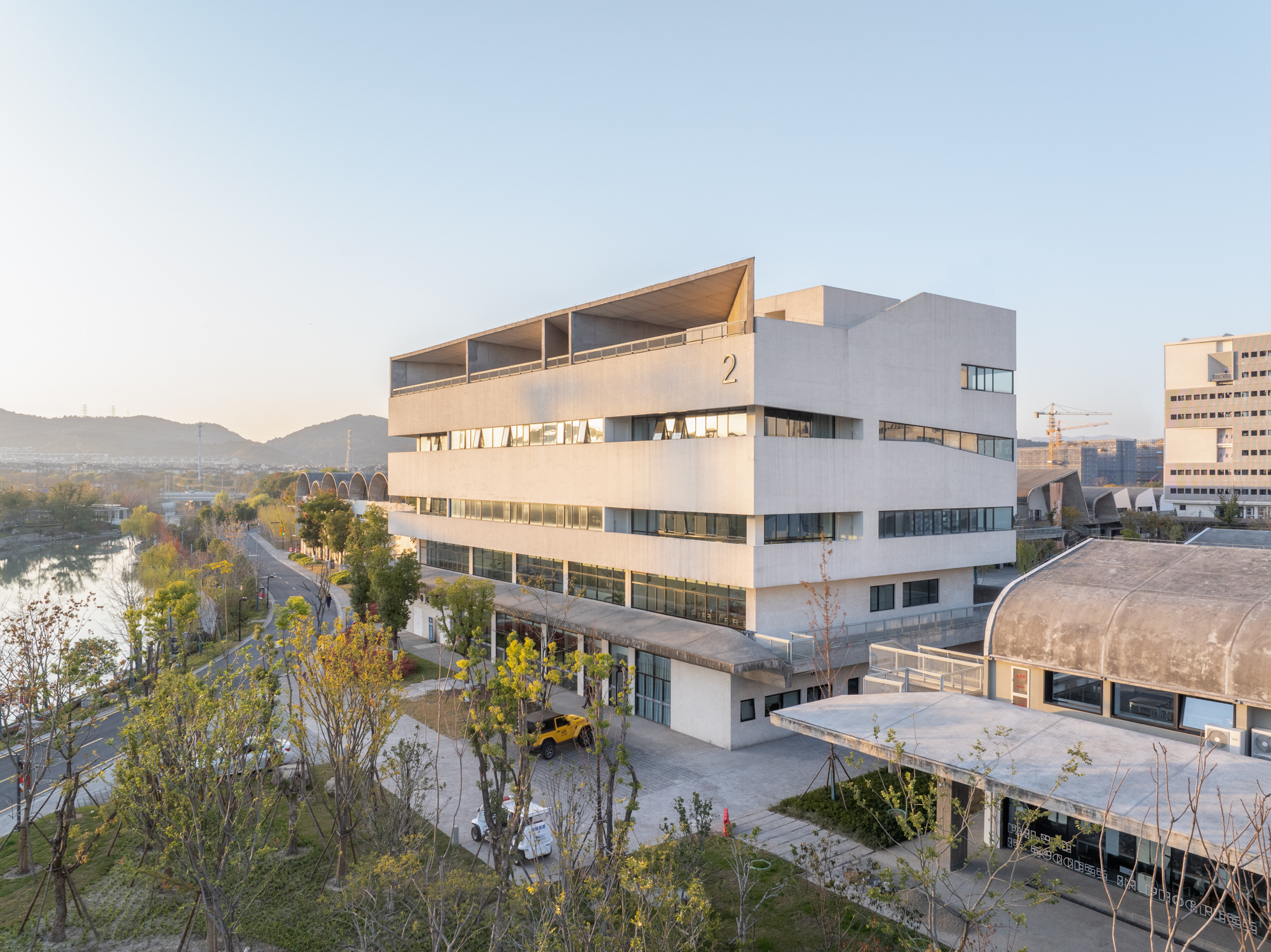
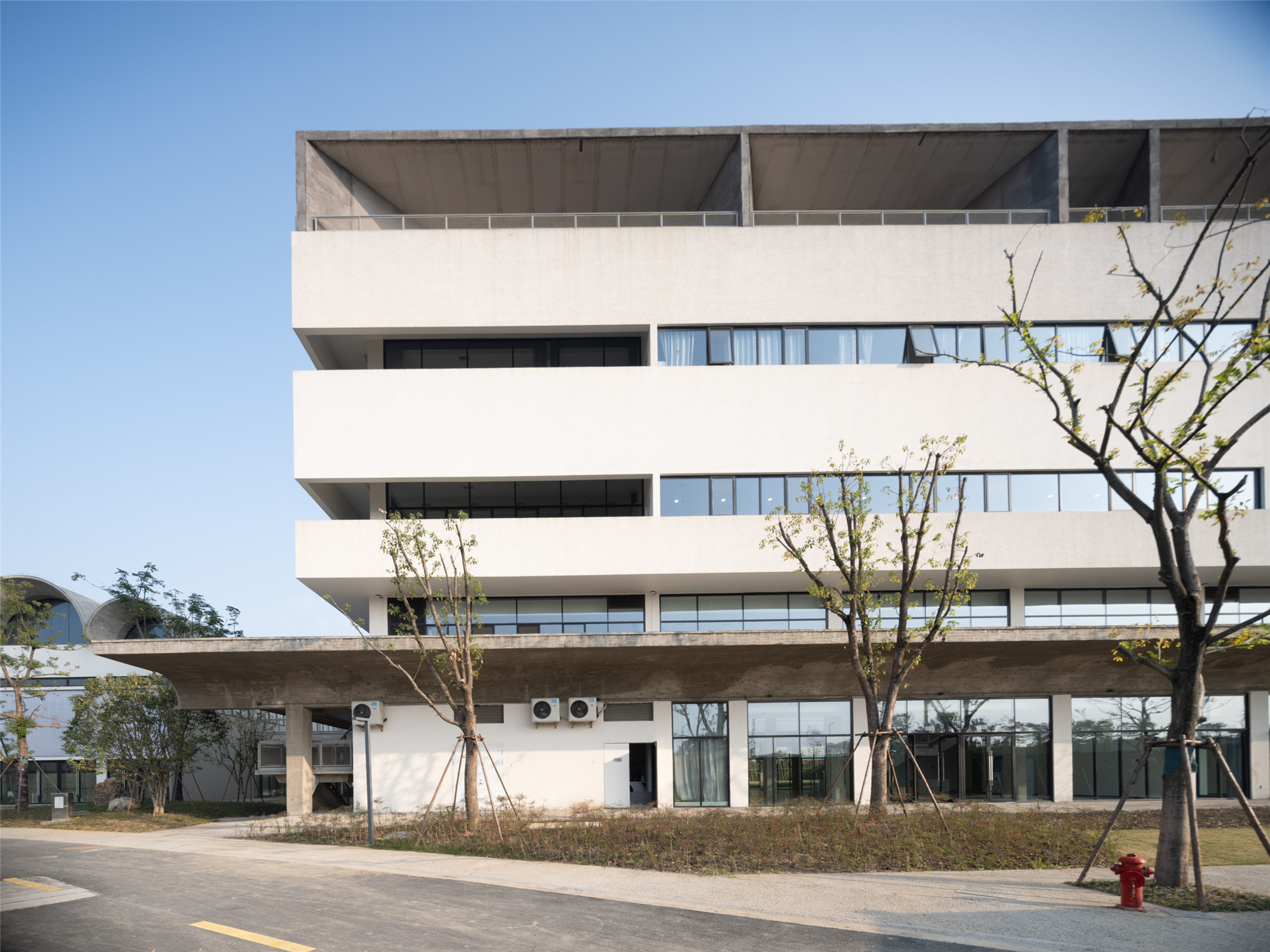

师生活动中心
这是良渚校园上唯一的独立于主校舍群而处于景观中的一个设施,功能的性质是休闲的,但没有更明确的定义,接近传统意义上的亭子或茶室。该建筑的结构形式采取混凝土折板体系,空间形态则是完全自由的。尽管它的规模很小,但完美地呈现出非常建筑在良渚校区设计中最主要的追求之一,即内容上开放、形式上自由的建筑空间。
Situated within the landscape of the Liangzhu campus, this building stands alone, distinct from the main school building complex. It is purposed for leisure and evokes the ambiance of traditional pavilions or tea houses without a precise definition. Despite its modest size, this building demonstrates a spatial configuration that is not dictated by the concrete folded plate structure and reflects a commitment to openness and freedom, a core principle of the architectural approach for the Liangzhu campus, by Atelier FCJZ.

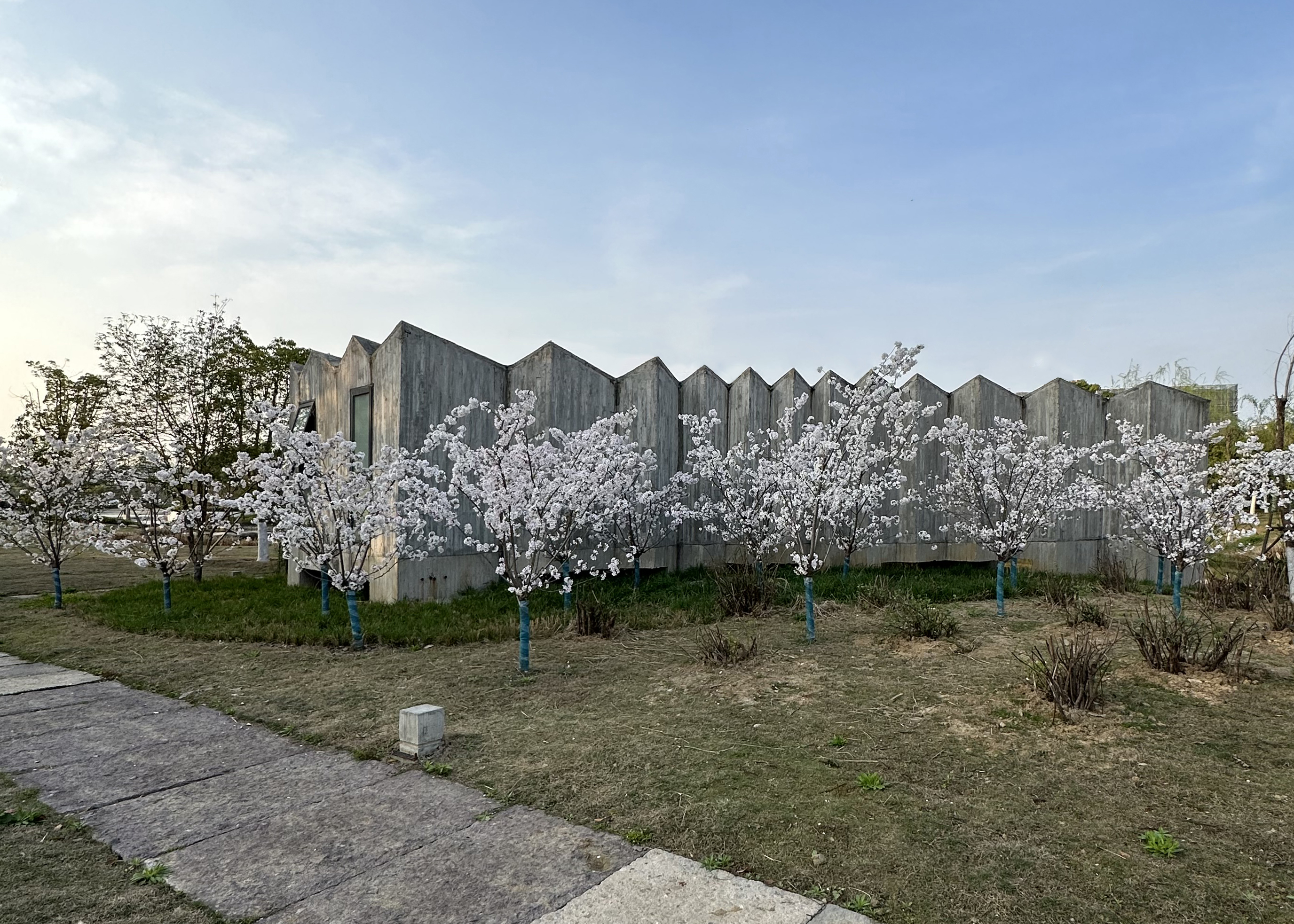

内容与建筑的对话
在良渚,内容——国美师生的教学、研究、创作及日常、课外生活——与建筑的对话正在进行中。从工坊空间层出不穷的使用方式到室外环境中涌现出的丰富多彩的装置,从学生们在不同建筑局部的种种投影到国美95年校庆将图书馆整体地转化为影像的屏幕,都体现出艺术学人对建筑的理解和想象;作为回应,非常建筑的建筑师们也在工坊中设计了混淆二度与三度空间的平面窗框。我们相信使用者的参与会给建筑带来全新的启示。
At Liangzhu, there is an ongoing dialogue between architecture and content, which includes teaching, learning, research, creation as well as extracurricular life of CAA students and faculty. From the myriad uses emerging from the studio spaces to the diverse installations appearing in the outdoor environment; from the various projections of students in different areas of the buildings to transformation of the entire library into a continuous screen for the occasion of the CAA's 95th anniversary celebration, these interventions collectively showcase the art students' unique perspective and creative vision of architecture. In response, the architects of Atelier FCJZ have designed trompe l’oeil window frames in the studio to blur the boundaries between the 2D and 3D spaces. We are confident that interactions between different actors in the continuous design process will bring new revelations to architecture.

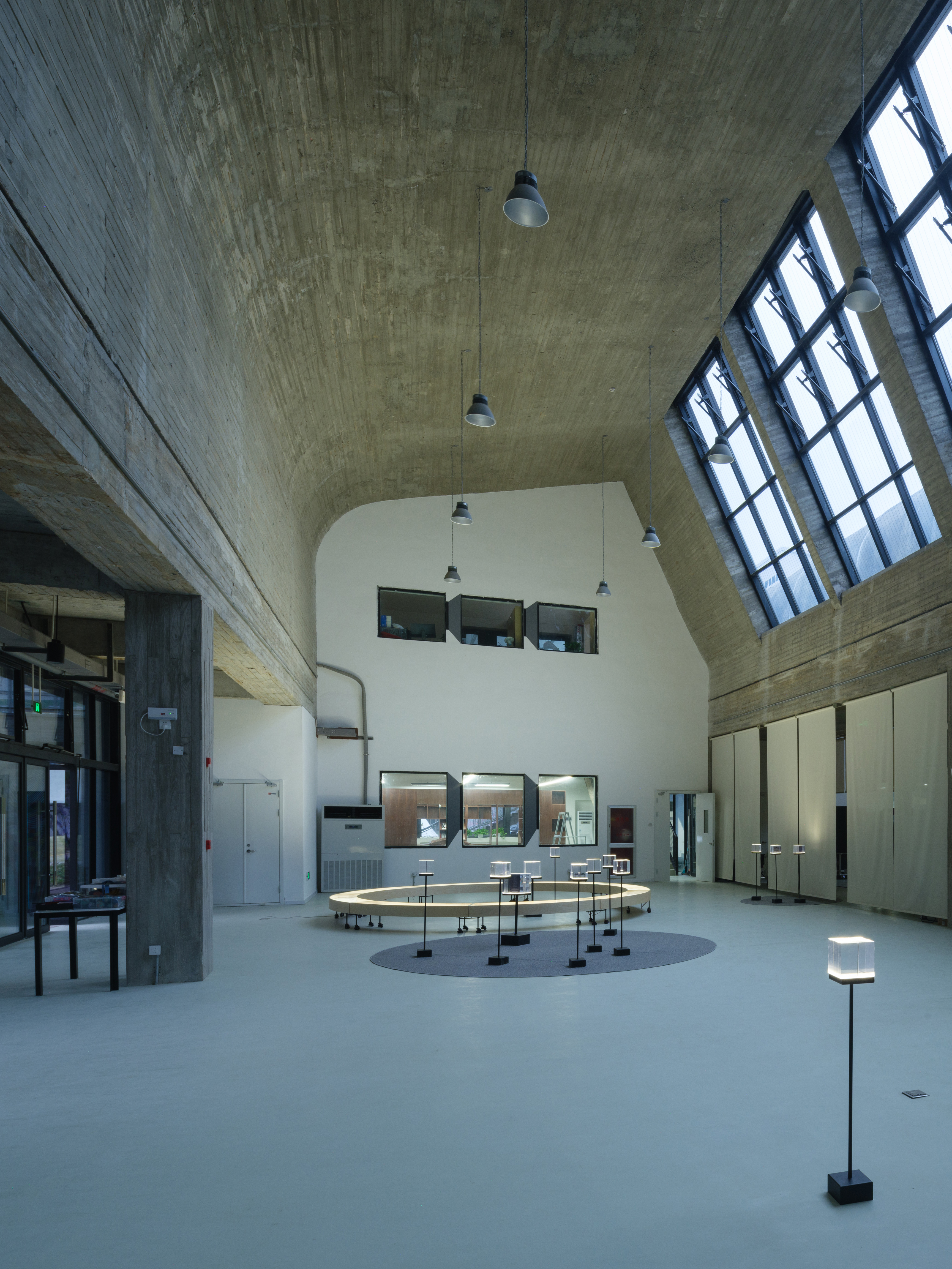
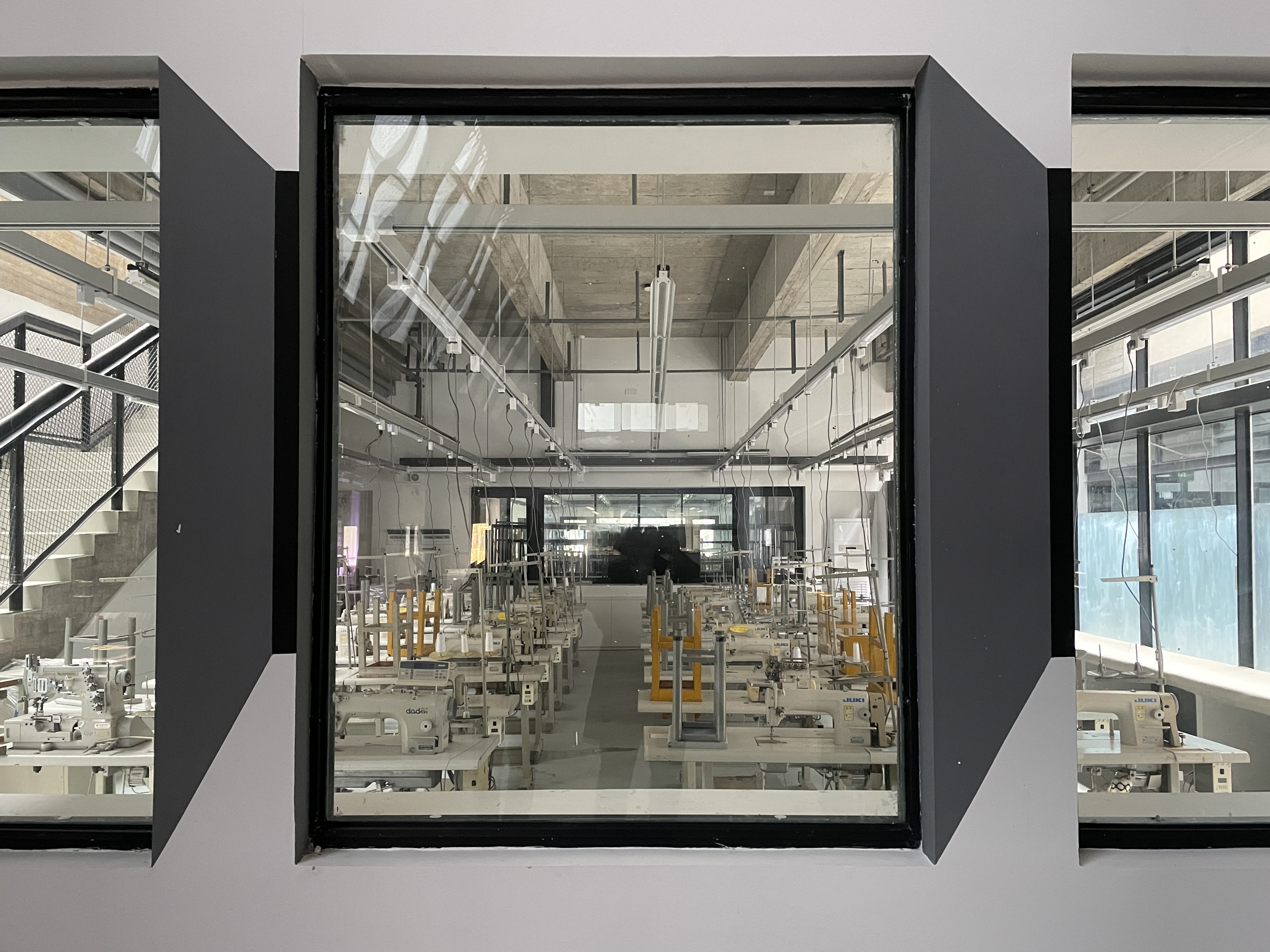
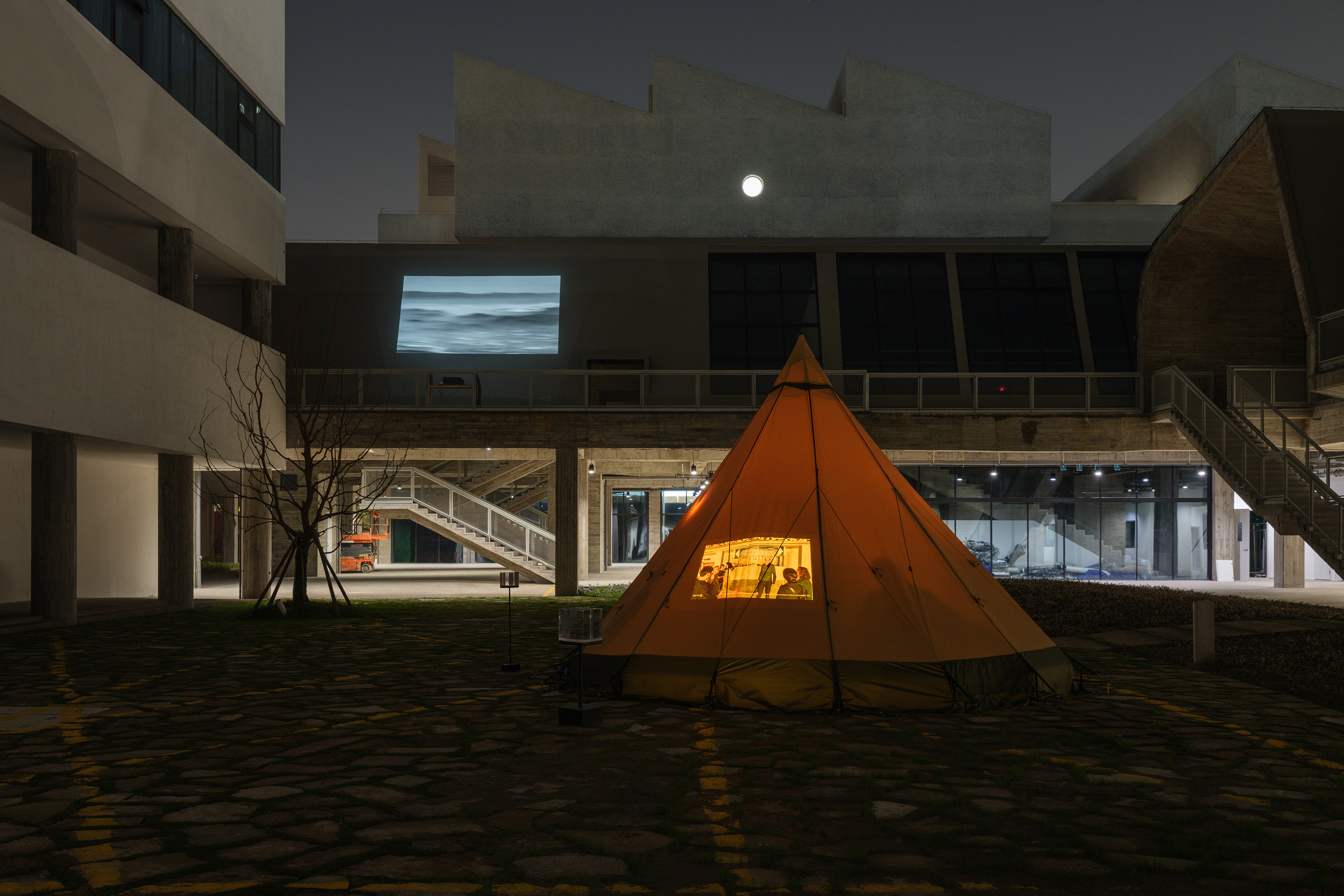
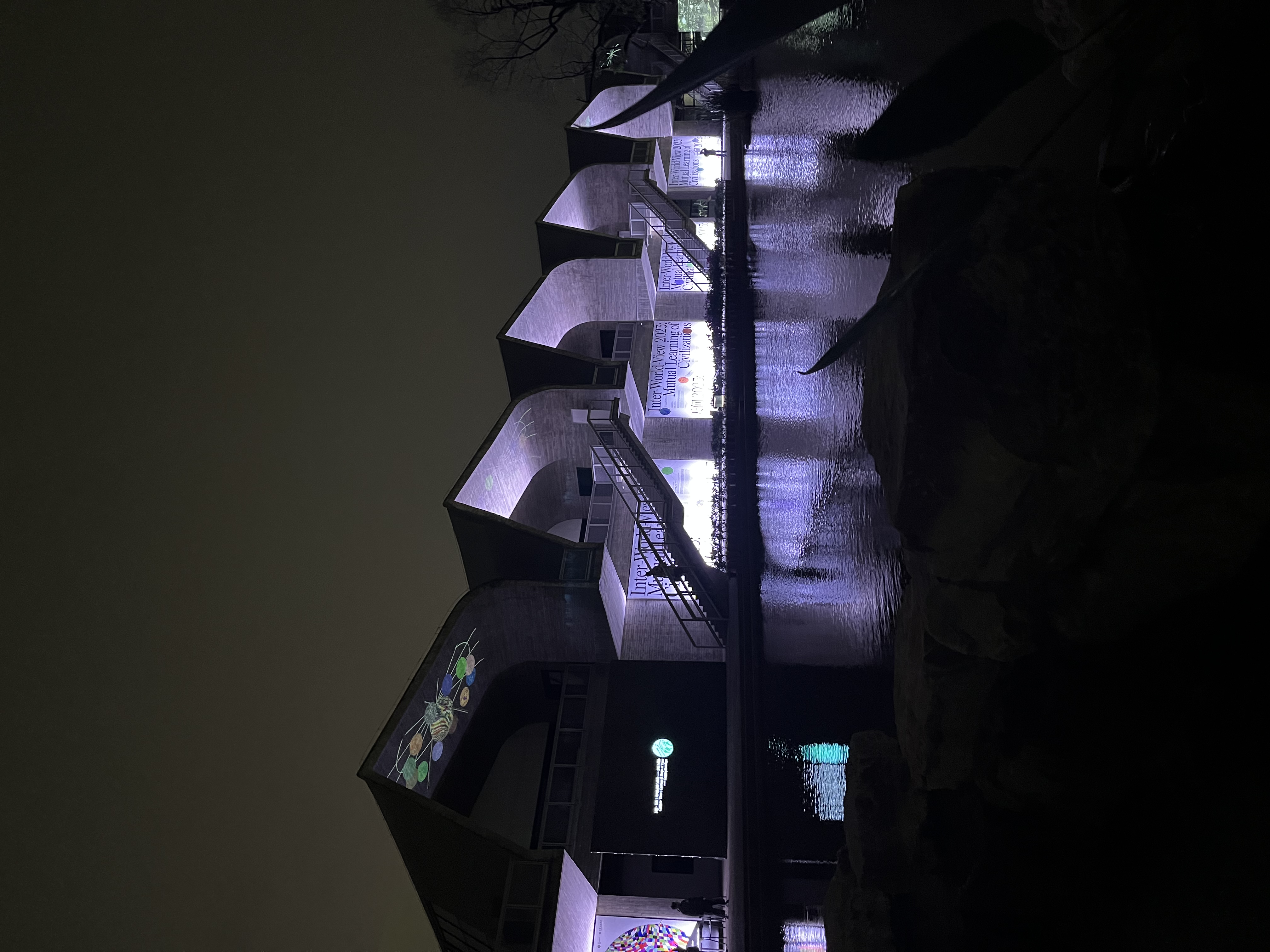
设计图纸 ▽
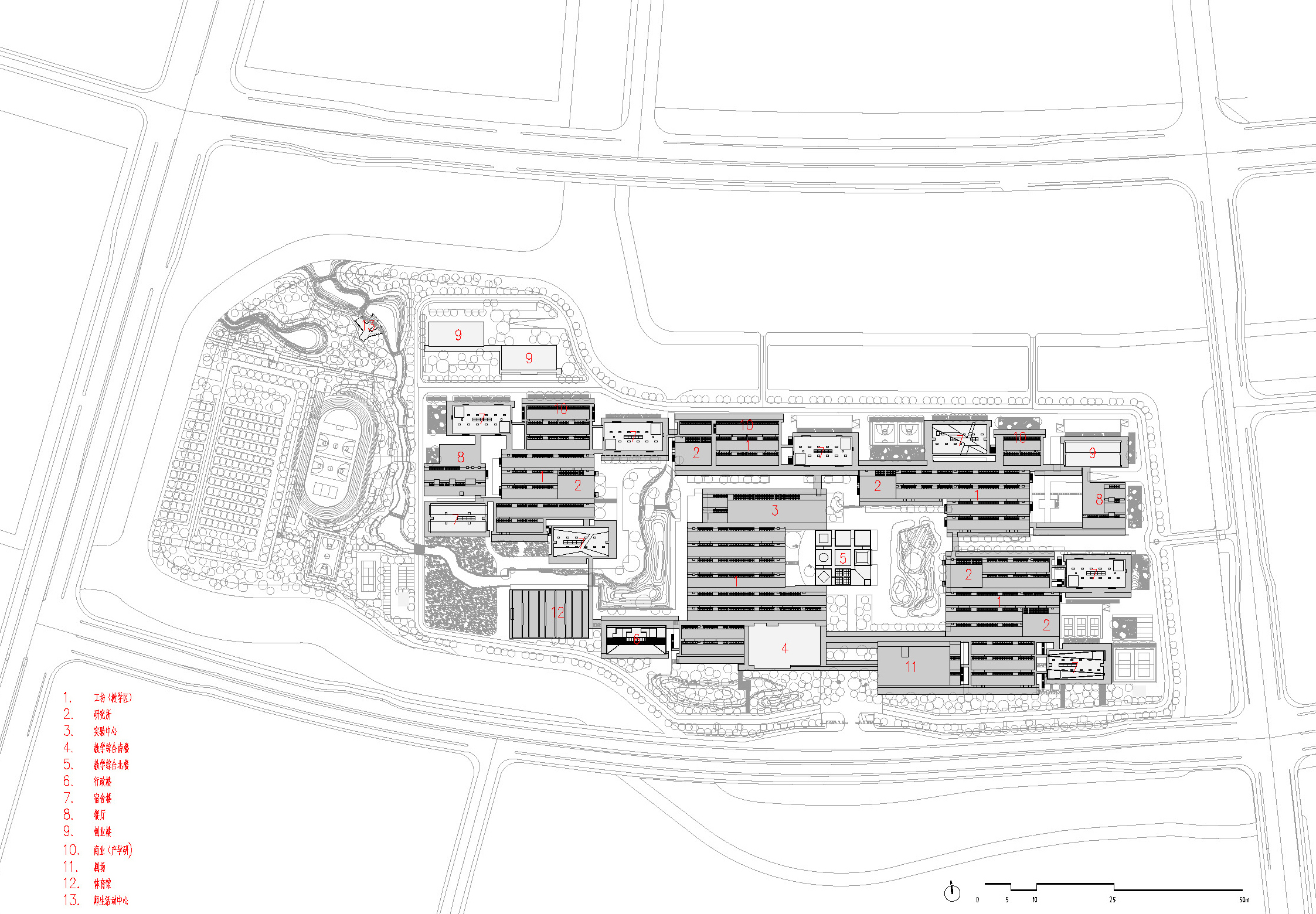




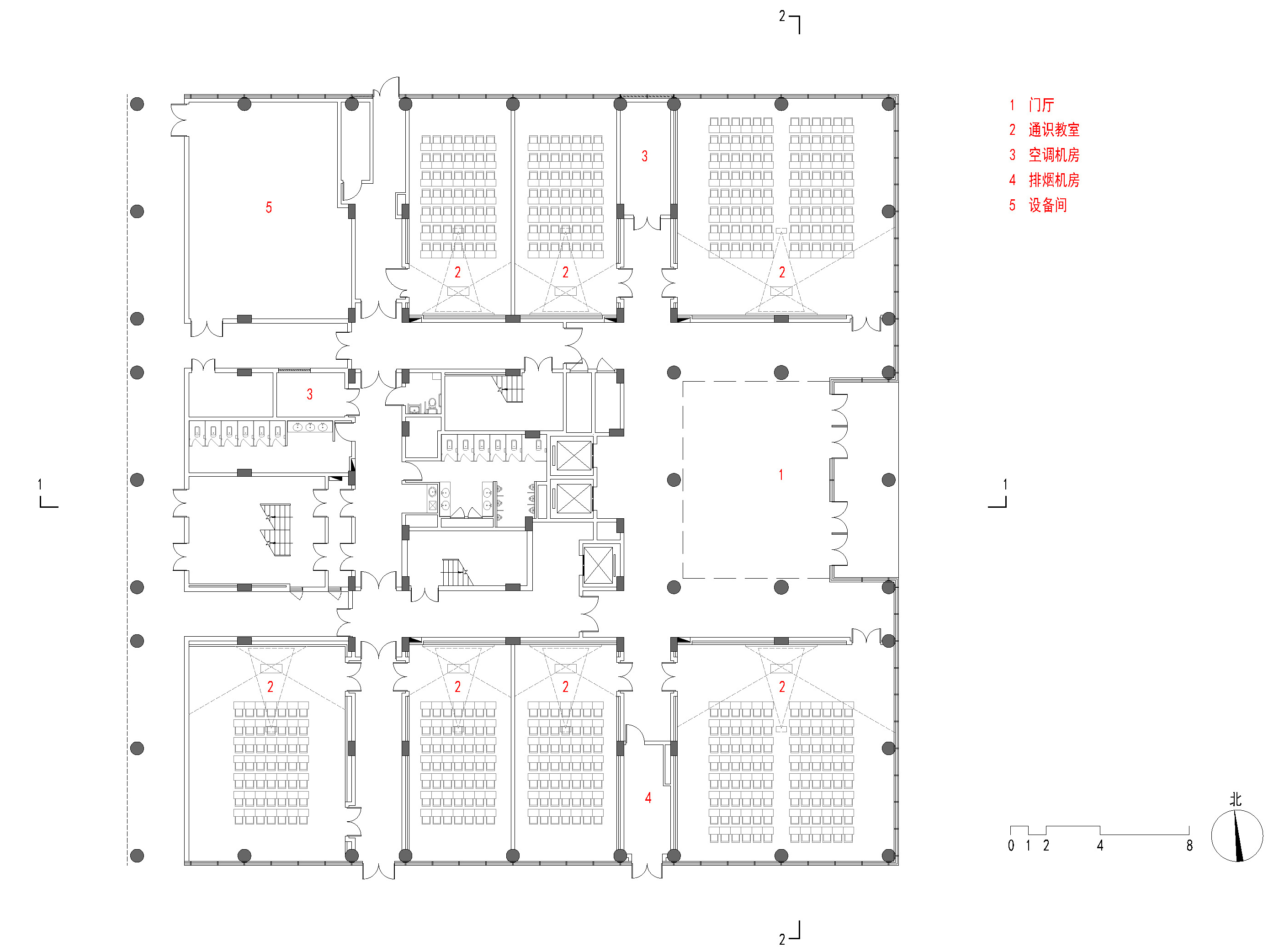
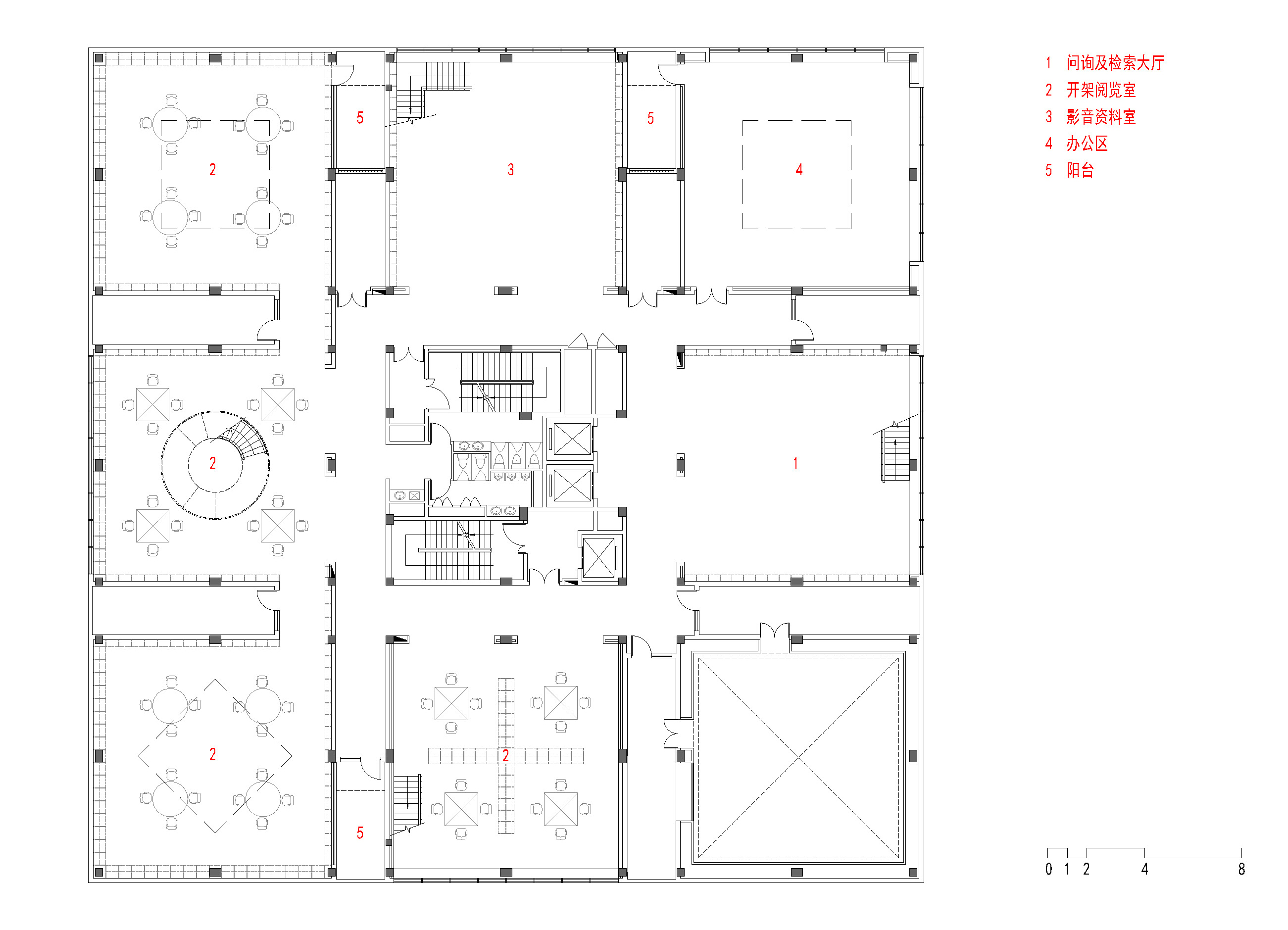

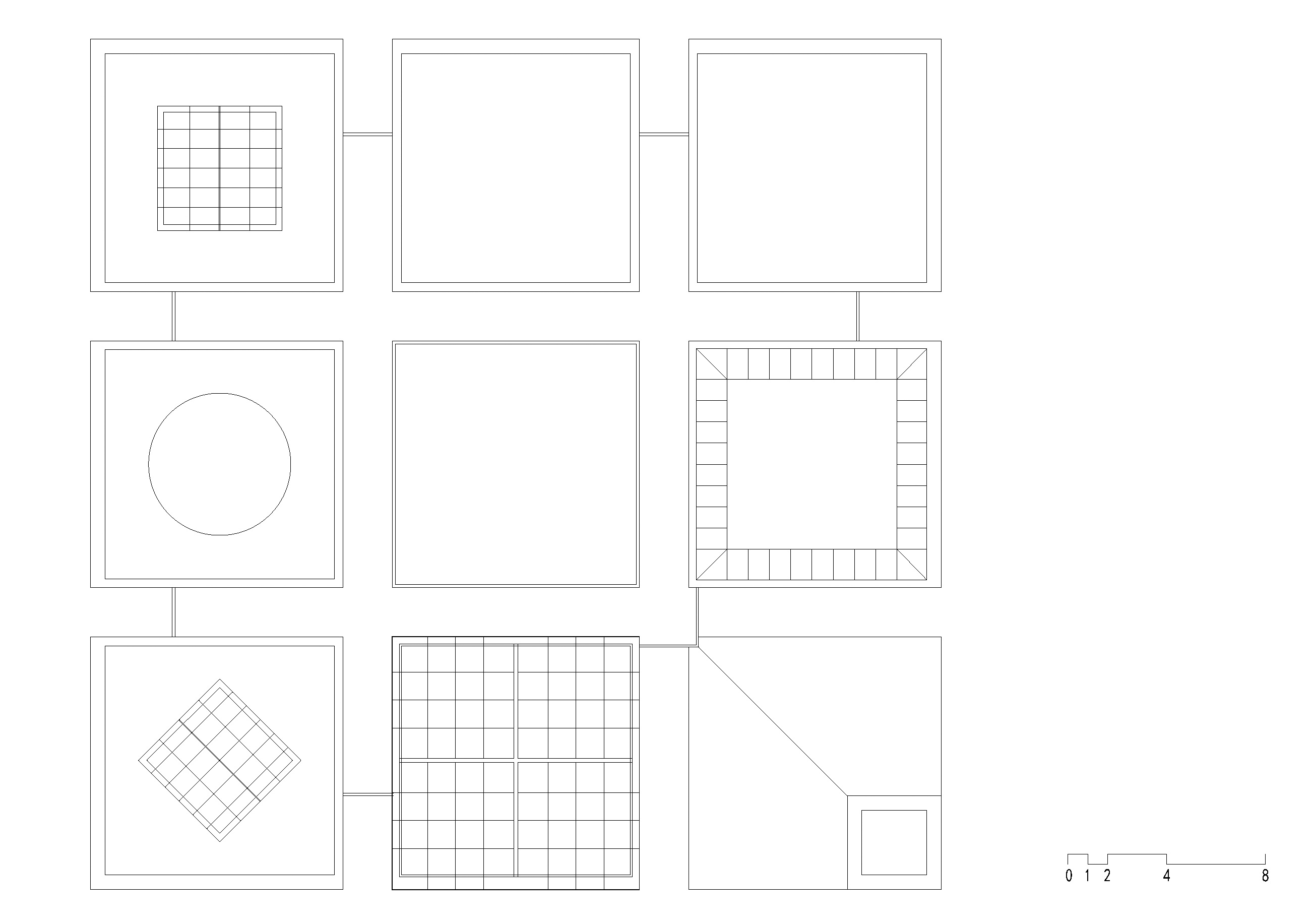
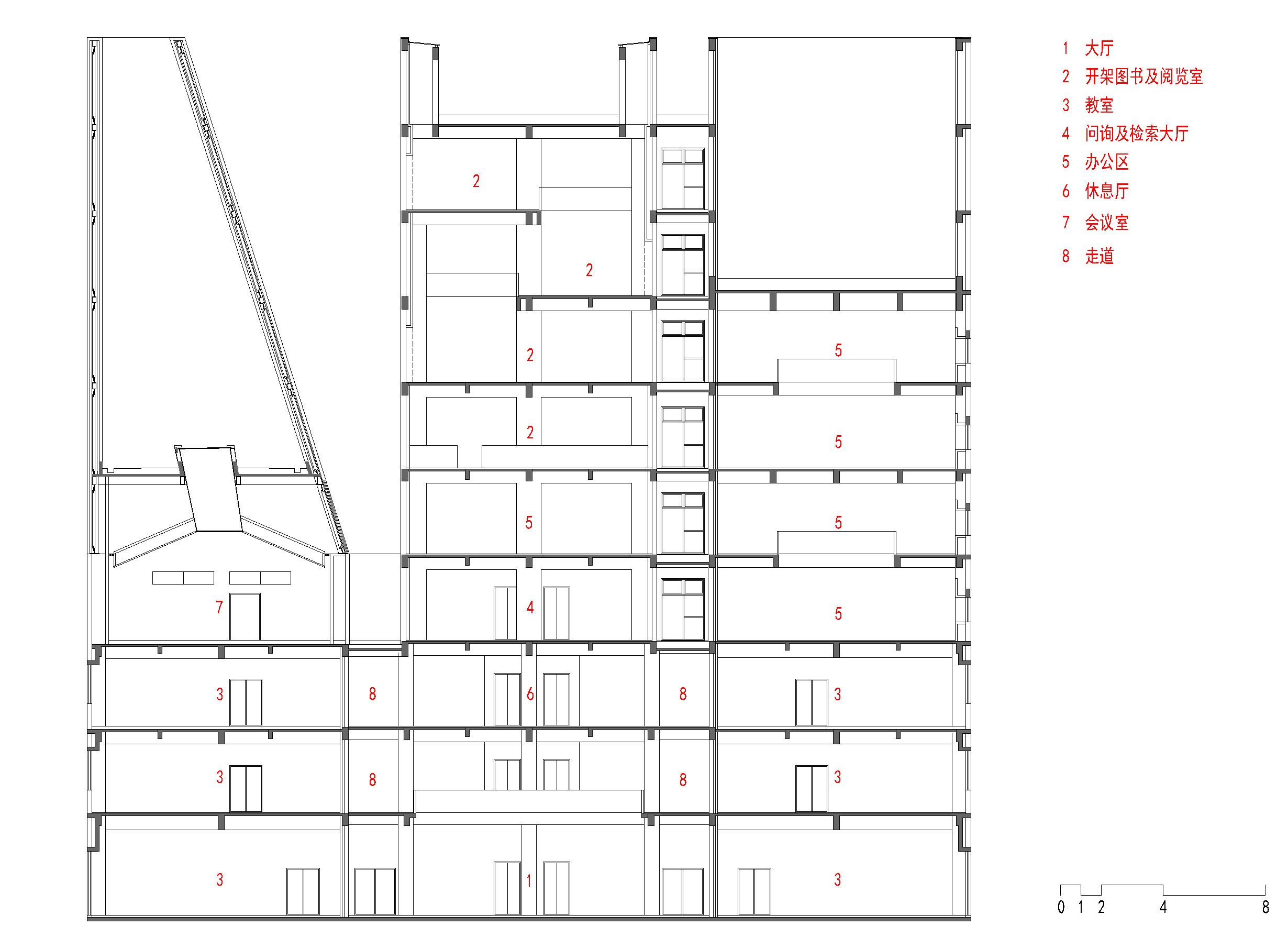
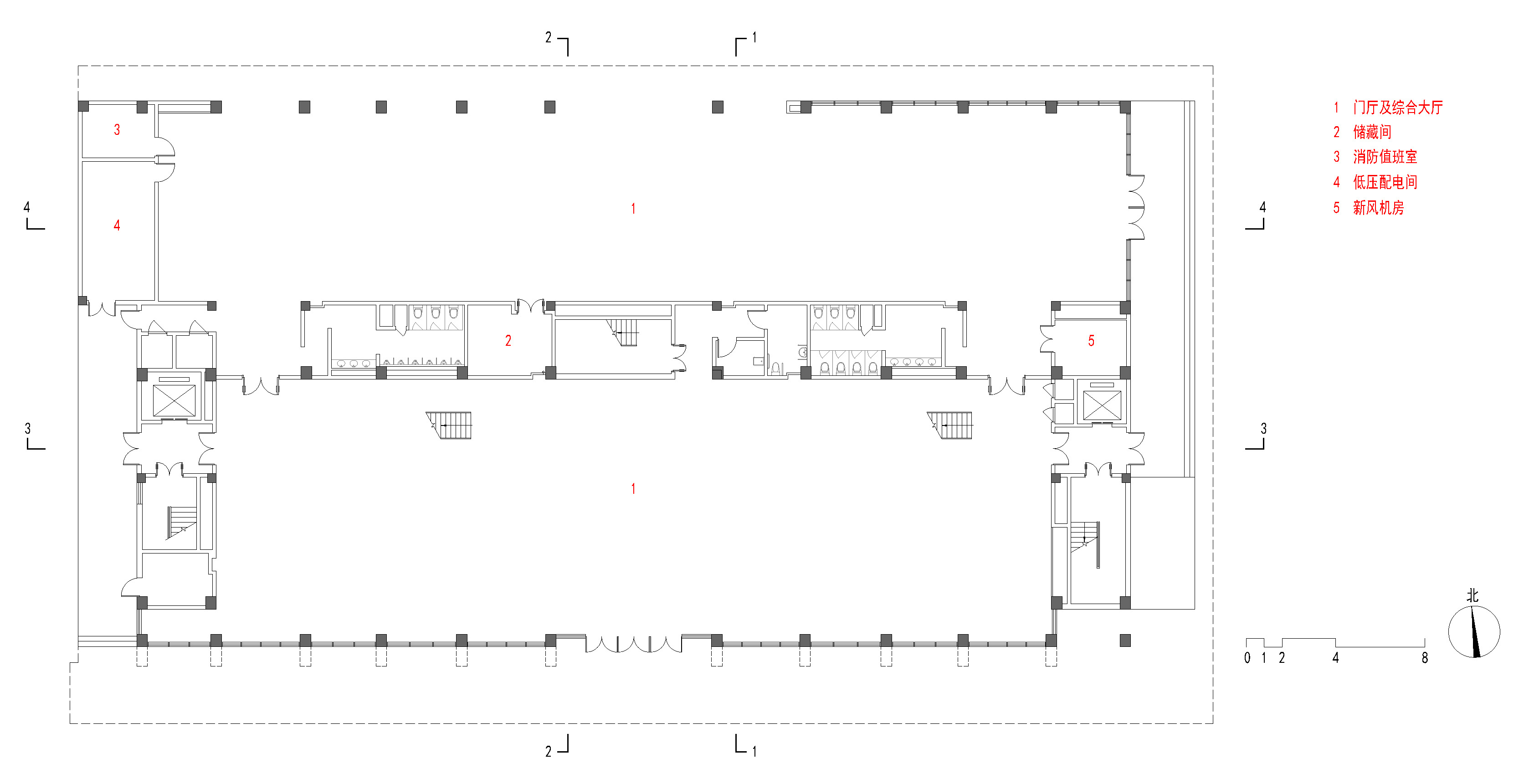

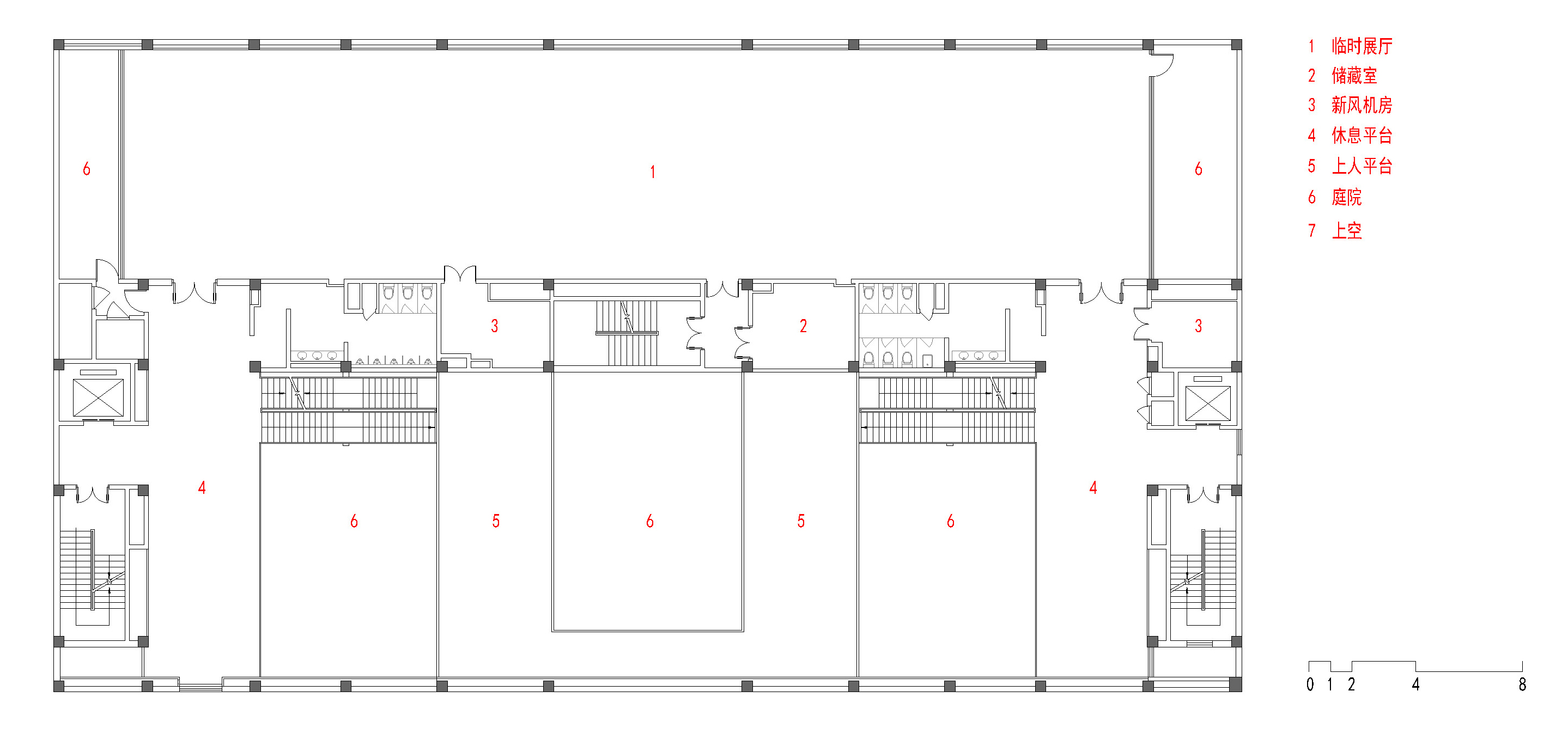
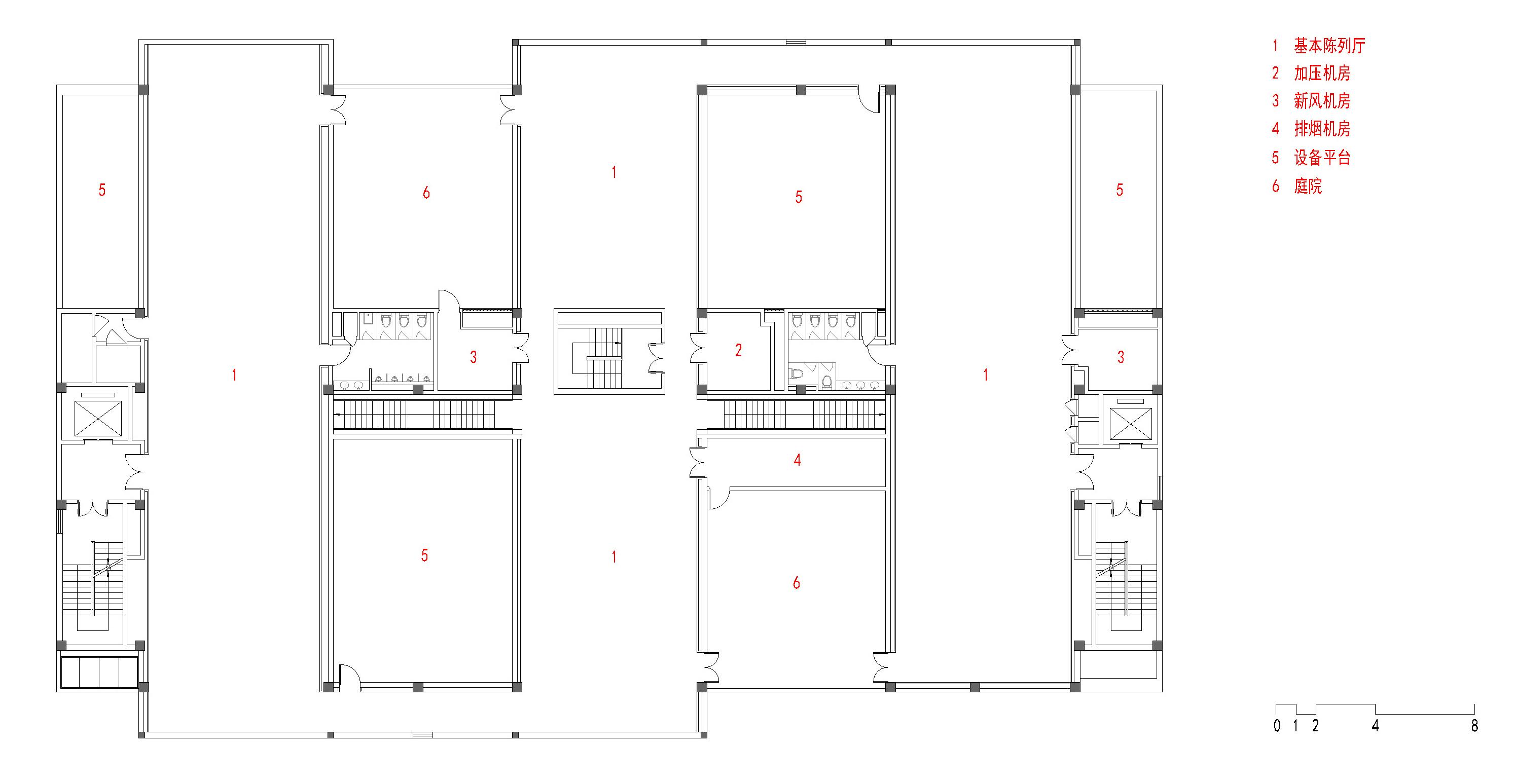
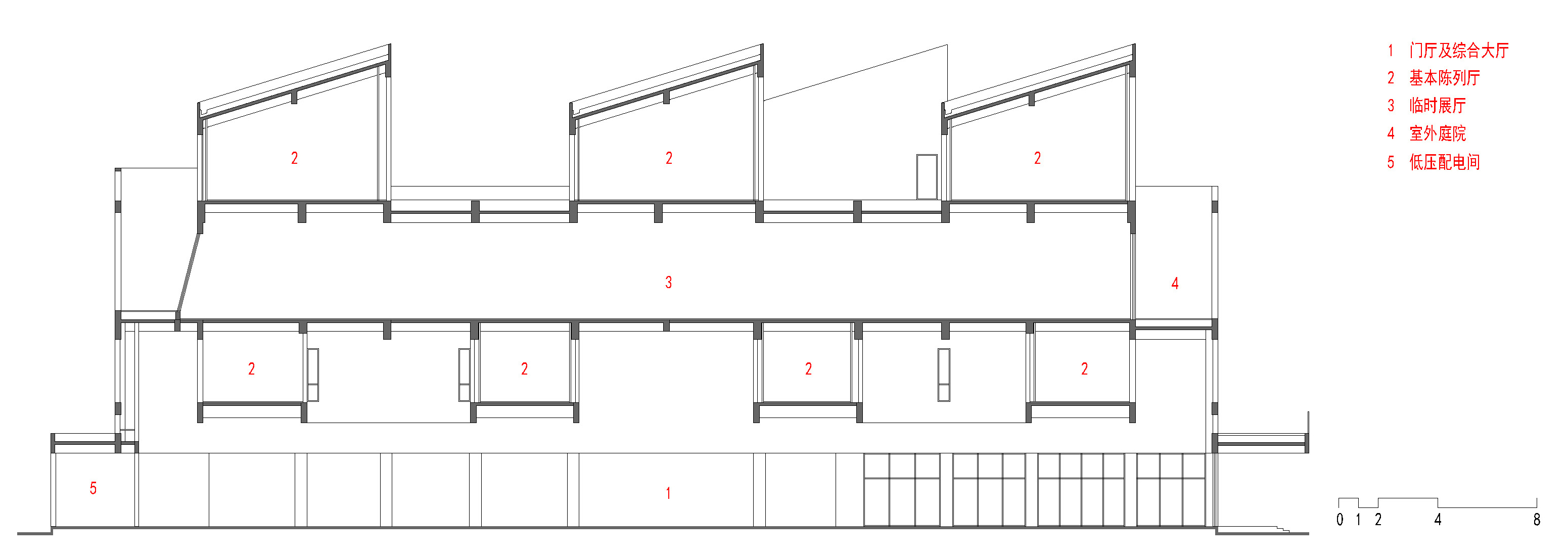

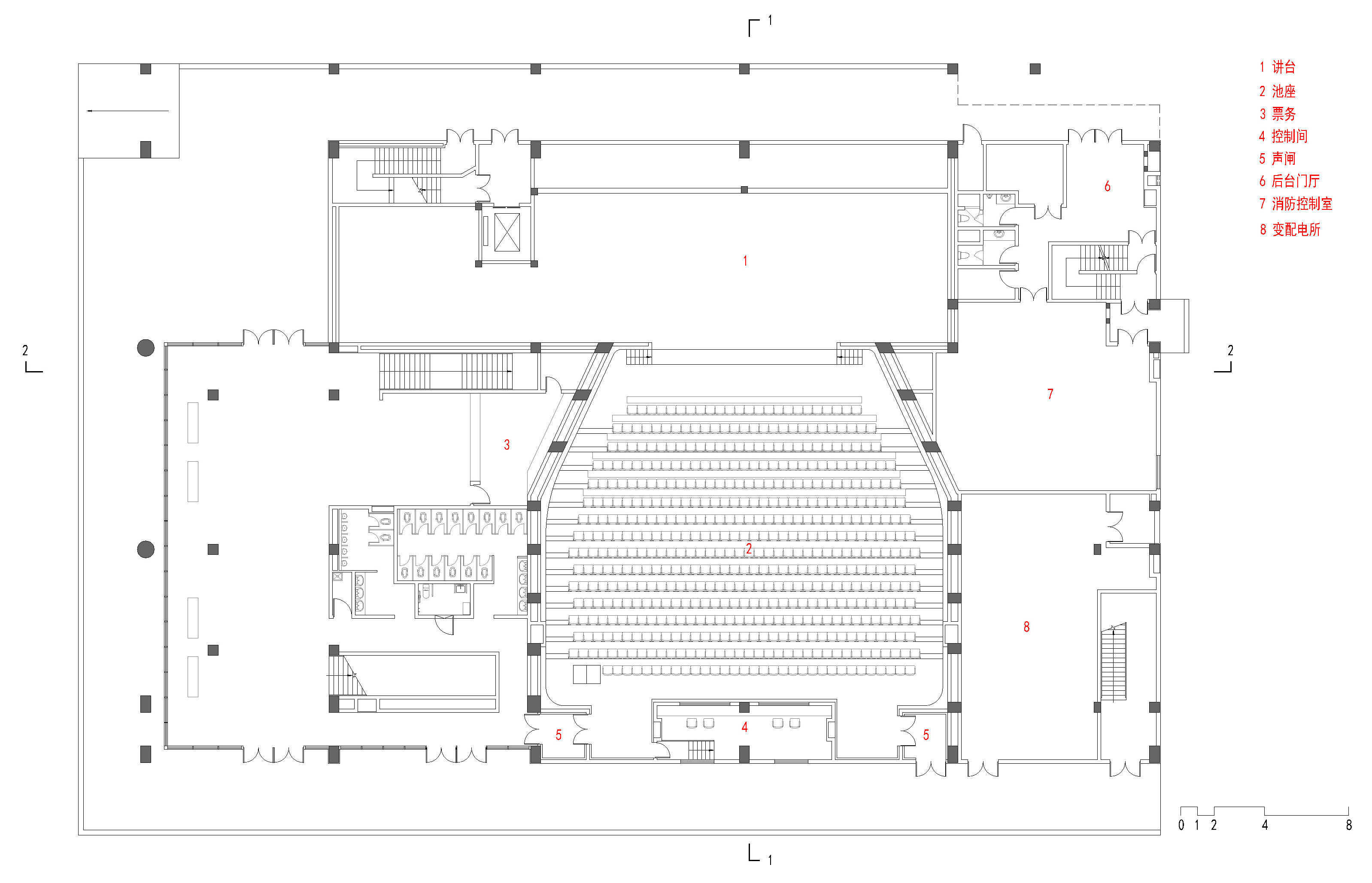
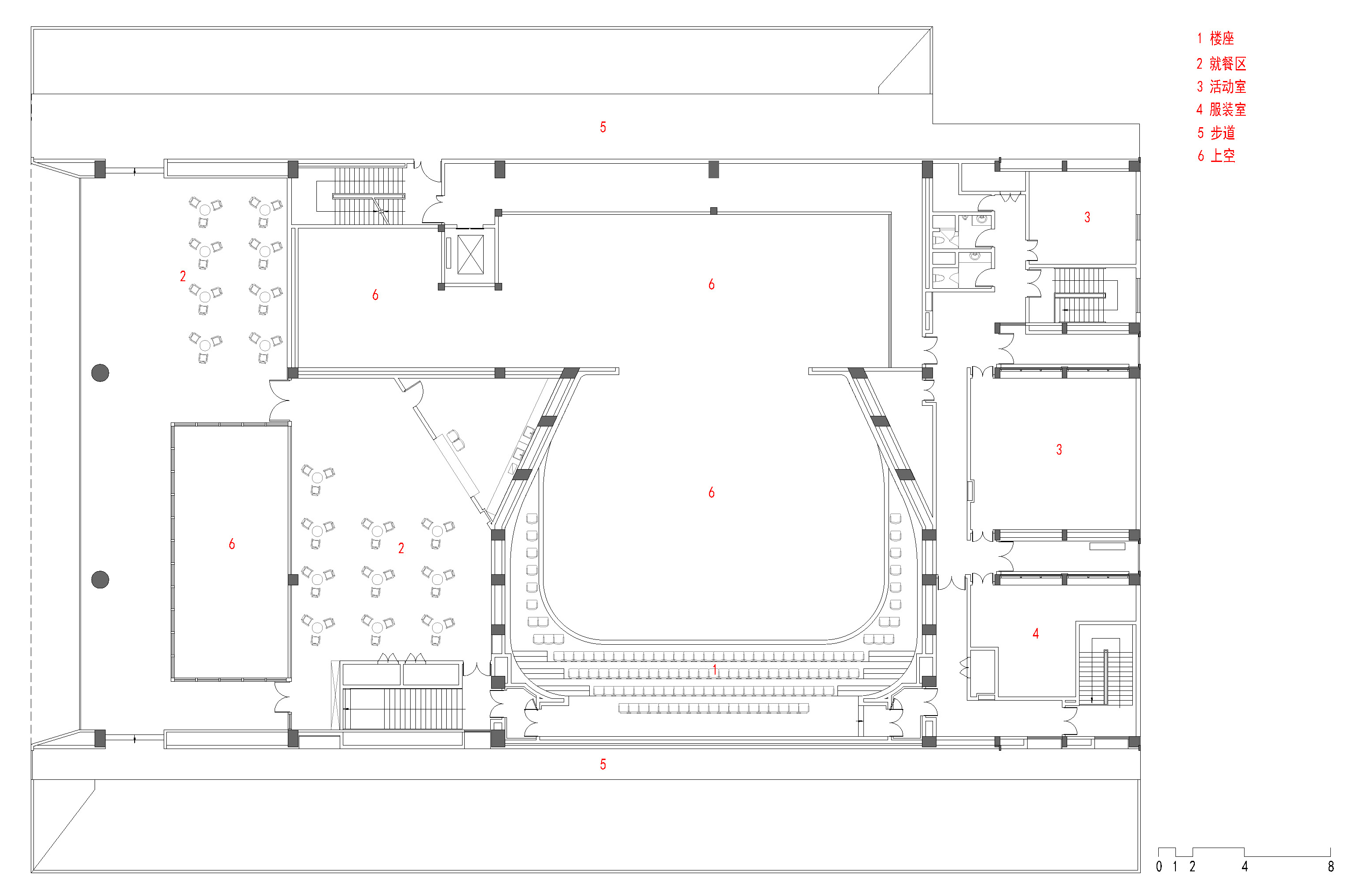
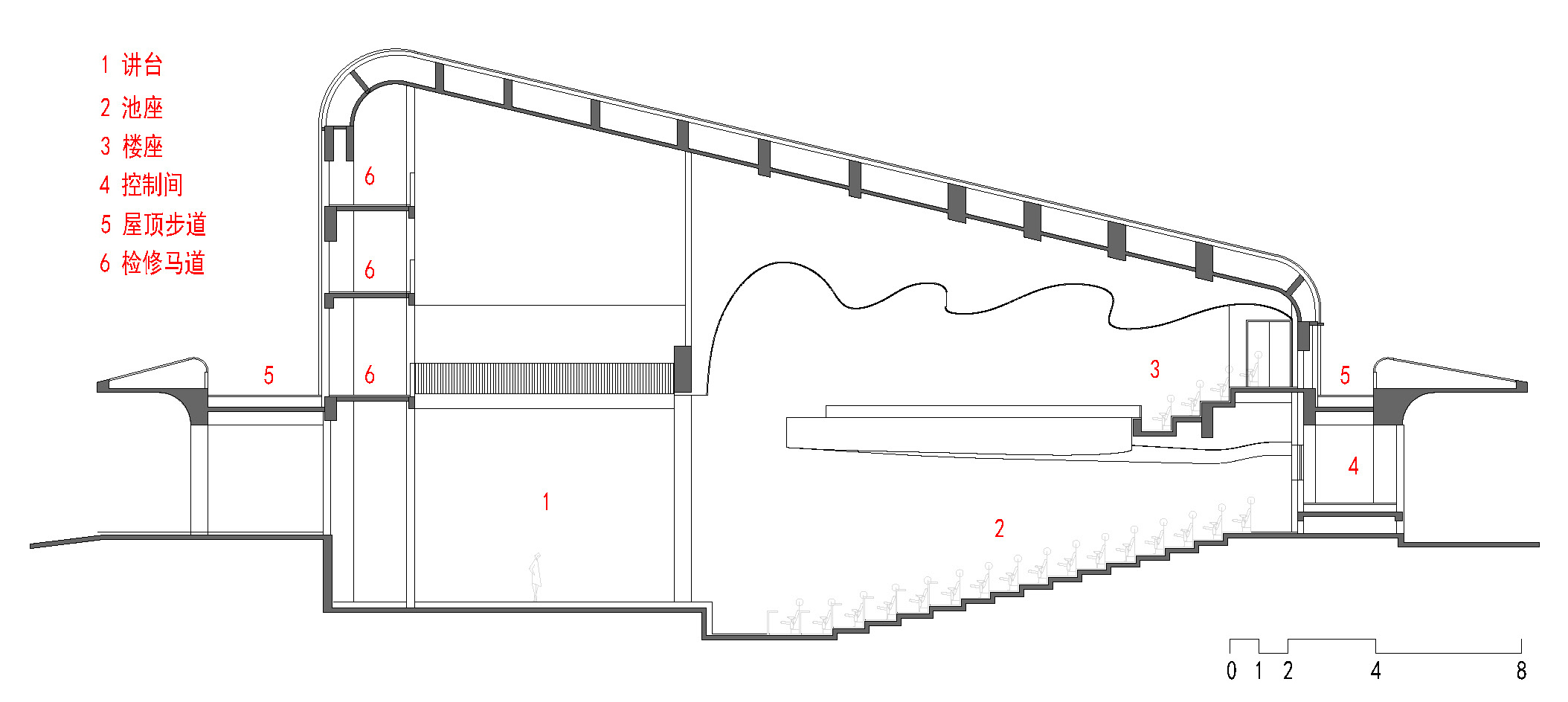


完整项目信息(一期Ⅱ段)
业主:中国美术学院
地址:中国,杭州良渚
主持建筑师:张永和、鲁力佳
项目团队:
建筑:王文志(Ⅱ段)、尹舜(Ⅰ段)、王玥、龙彬、黄舒怡、梁小宁、刘扬、柳超、张博文、王硕、程艺石、何泽林、师琦、林诗洁、李相廷、谢岩旭、焦慧敏
室内:王玥、张敏、韩书凯、李帅
景观:师琦、尹舜、林诗洁
现场协调:李诗琪
施工图设计:同济大学建筑设计研究院(集团)有限公司 建筑设计三院
照明顾问:TJAD建筑照明所
建筑面积:180000平方米
结构:钢筋混凝土结构
设计周期:2018.3—2019.6
竣工年份:2021(一期Ⅰ段);2023(一期Ⅱ段)
版权声明:本文由非常建筑授权发布。欢迎转发,禁止以有方编辑版本转载。
投稿邮箱:media@archiposition.com
上一篇:非常建筑新作:中国美术学院良渚校区(一期Ⅰ段)
下一篇:BIG最新方案:纽约自由广场,曼哈顿东岸新地标